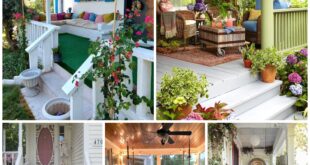On a harmonious journey between the timeless and the contemporary, transitional design emerges as a fascinating bridge that connects the worlds of traditional elegance and modern minimalism. In a world where design sensibilities are constantly evolving, transitional design stands out as a versatile and alluring approach that captures both the nostalgia of the past and the simplicity of the future.
The transitional design sits comfortably between classic and modern, cleverly combining the warmth of traditional aesthetics with the clean lines and simplicity of modern design. This artful fusion creates spaces that exude both familiarity and freshness, resulting in environments that are both inviting and sophisticated. Through carefully curated contrasts, transitional spaces combine the best of both worlds, effortlessly combining ornate details with clean shapes and rich textures with a calming color palette.
This article delves into the essence of transitional design, decoding its core principles and demonstrating its transformative power in different spaces. From living rooms that effortlessly blend antique pieces with sleek modern accents to kitchens that balance rustic charm with modern functionality, we explore how transitional design provides a canvas for self-expression and creativity. Join us on your journey through this fascinating realm where old meets new and discover how transitional design embodies the spirit of timeless evolution.
1. Bathroom transformations with transitional design
Transform your bathroom into a timeless and comfortable retreat by adopting a transitional design style. Choosing light colors creates the illusion of a large space. Investing in high-quality tiles or flooring can last for the life of your home. It is imperative to choose a versatile and elegant style as remodeling these features can become costly.
The simplicity of pure white countertops creates a polished foundation. Complement the brightness of the room with elements such as rich wood grains to create a sense of drama.
Installing a freestanding bathtub will instantly become the focal point of the room. Enhance the classic charm with gold or metal faucets and trim. The same approach can be applied to a traditional vanity to create cohesion throughout the bathroom. Combine decor and furniture from different decades to complete the transitional look.
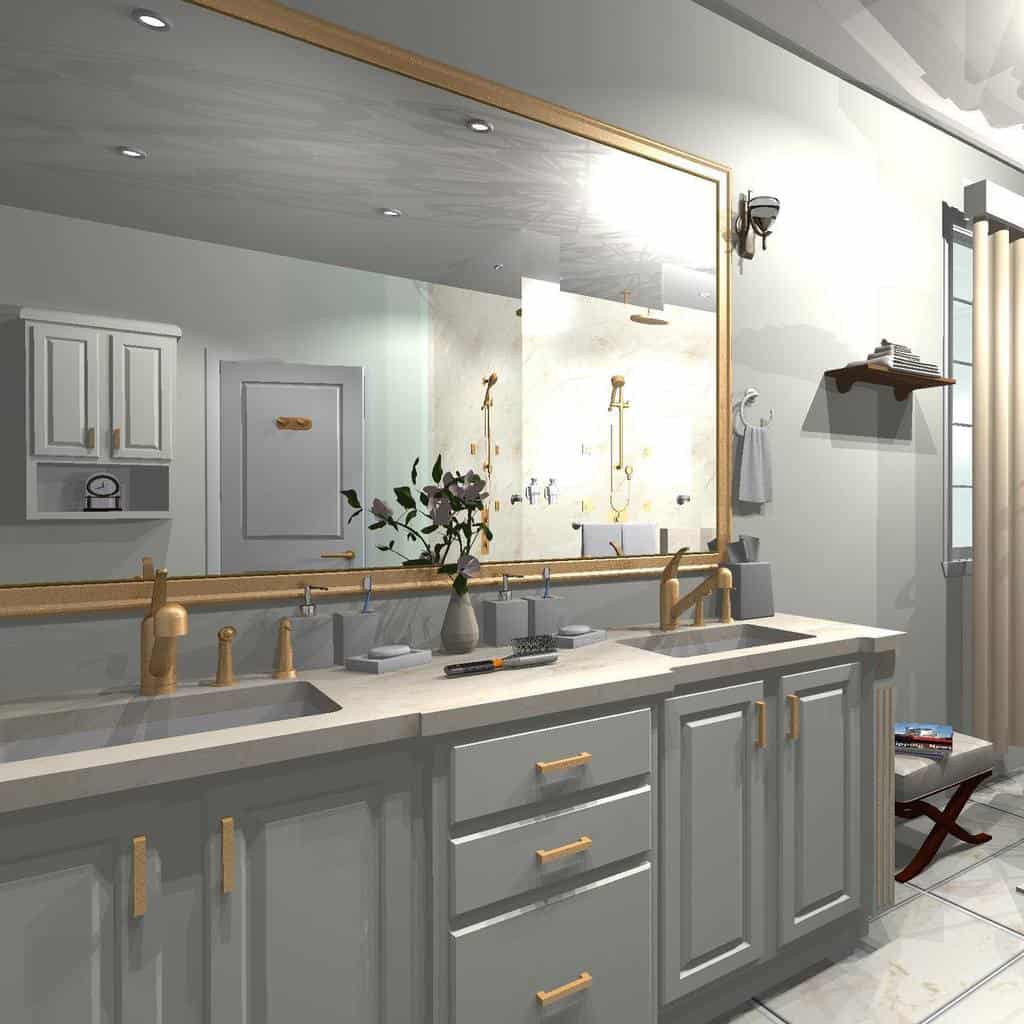
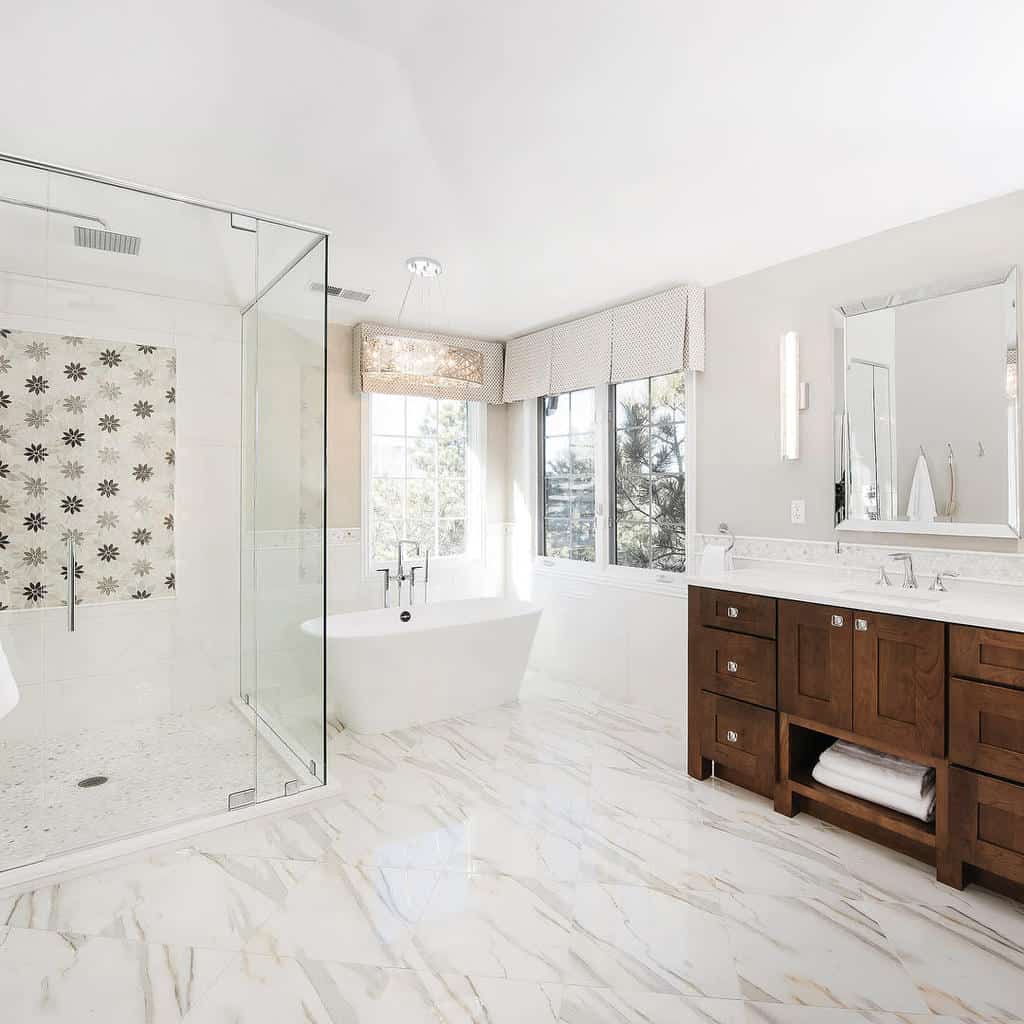
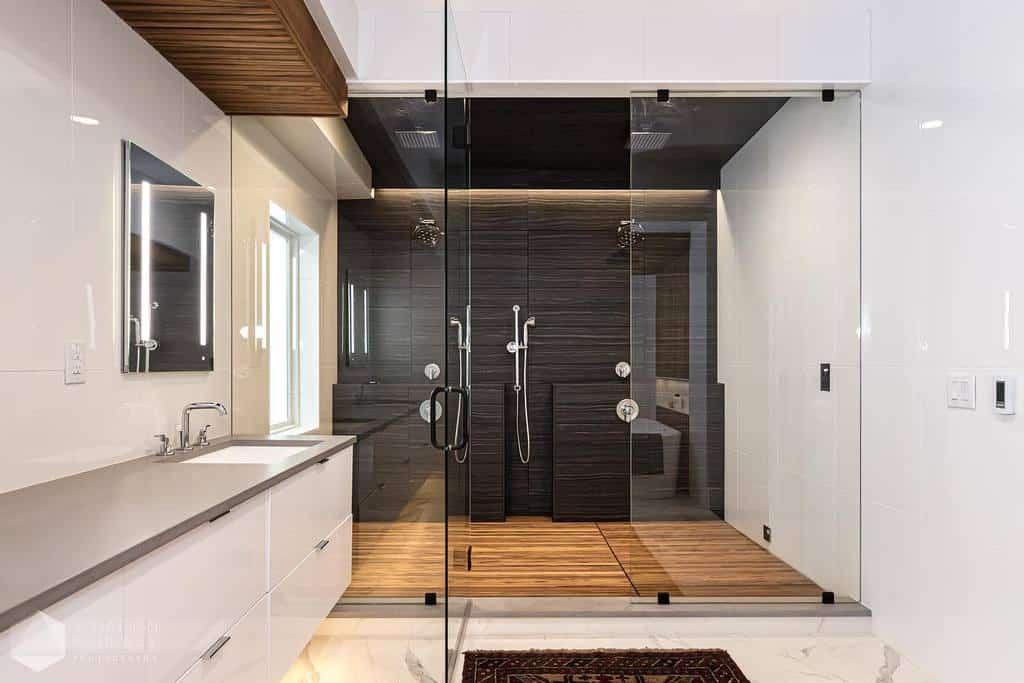
2. Bedroom Inspirations
The essence of simplicity and elegance is remarkable in a transitional design style bedroom. Express your creativity with subtle pops of color, but an overall soft color scheme is essential. Use shades of blue, green, or gray as accent colors. They will work well in the bedroom.
When you enter the bedroom, the bed is usually the first area your eye falls on. Set the tone for a soft, comfortable space with neutral bedding. Cozy blankets and pillows create a layered look with a variety of colors.
Regardless of the size of the bed, you should find a quality frame or stand for display. You can easily incorporate texture into the bed with the right fabrics or patterns. You can even tap into your inner interior designer skills and DIY your own tufted headboard if you’re up to the challenge! Another practical element to consider is a bench at the foot of the bed.
Play up the modern design even further by using metal finishes such as copper, bronze or gold. These elements are easy to find through lighting and decorative accessories. A few statement pieces like oversized mirrors and artwork are also perfect additions.
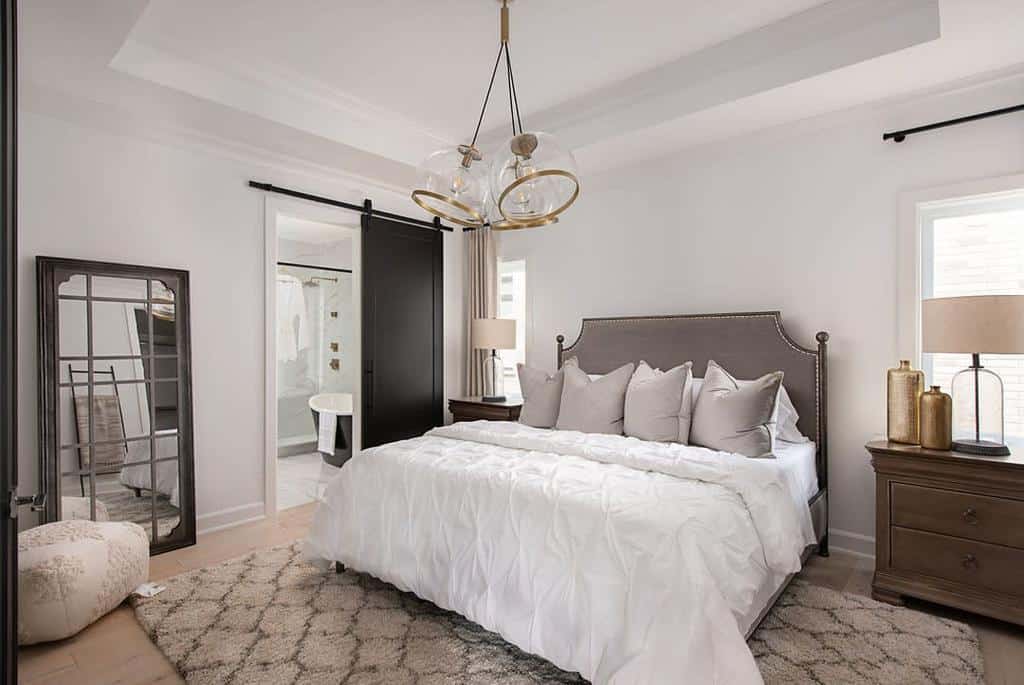
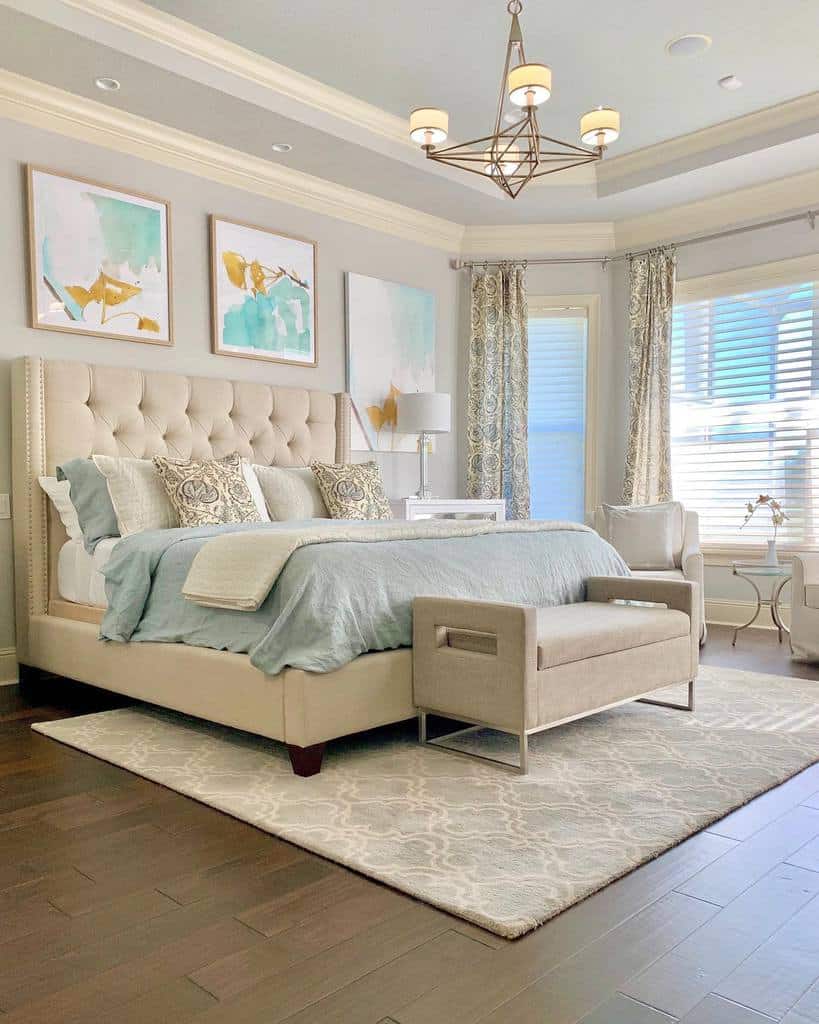
3. Upgrade your facility
A minimalist approach is not necessarily necessary to achieve a transitional style, but you should be selective when choosing decors. In most cases, a single unique piece of decor is better than lots of small accessories. The aim is to avoid overstraining the eyes.
Bring your space to life with the addition of greenery. Plants are a great way to add beauty and character to any space. Don’t have a green thumb? Artificial plants and artificial flowers can provide the same visual benefit without the hassle of maintenance.
Elevate a room with traditional statement furniture like a dresser, mirror, or tables. Simple accents like pillows, blankets, and candles soften the look of a room and create a cozy, inviting atmosphere.
Highlight the ornate details in your home. Moldings and wood elements create a modern aesthetic without sacrificing the traditional details of your home. Additionally, play with the mix of textures and fabrics with the contemporary design.
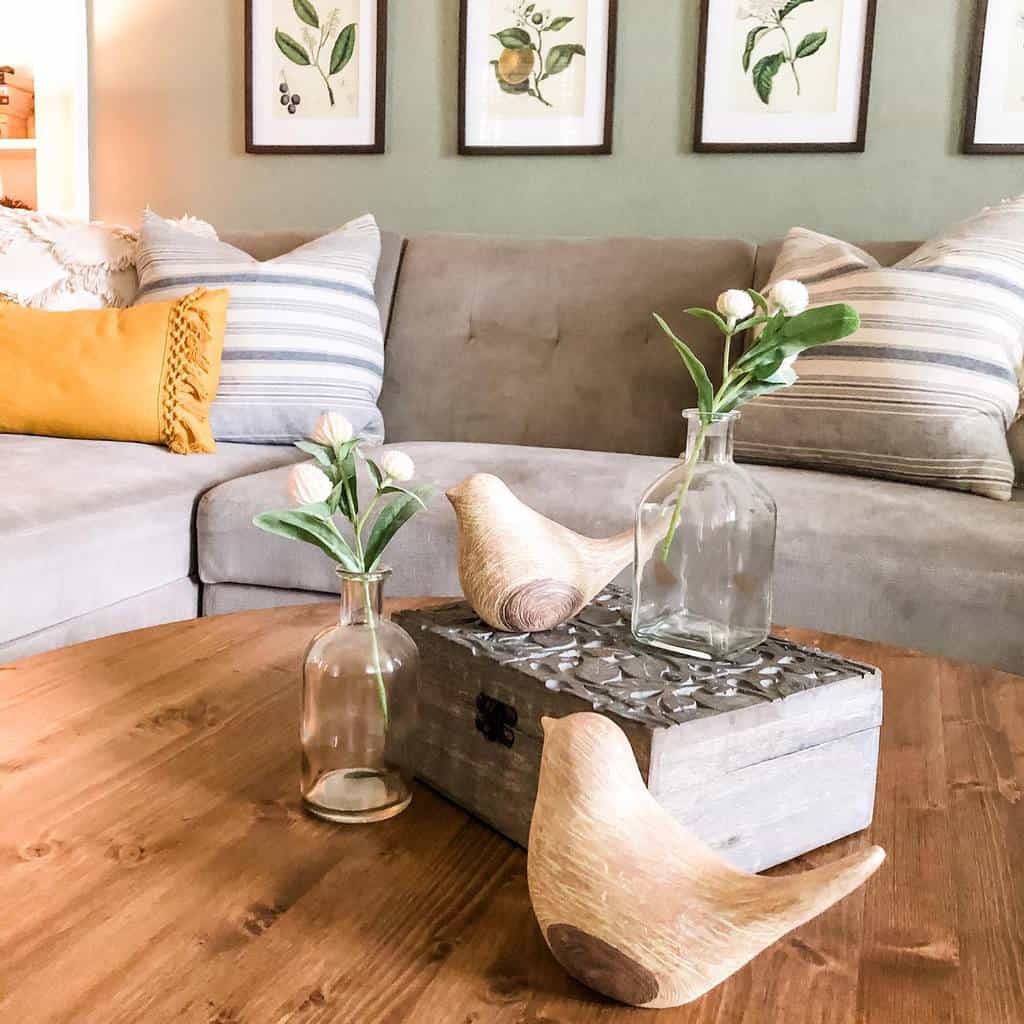
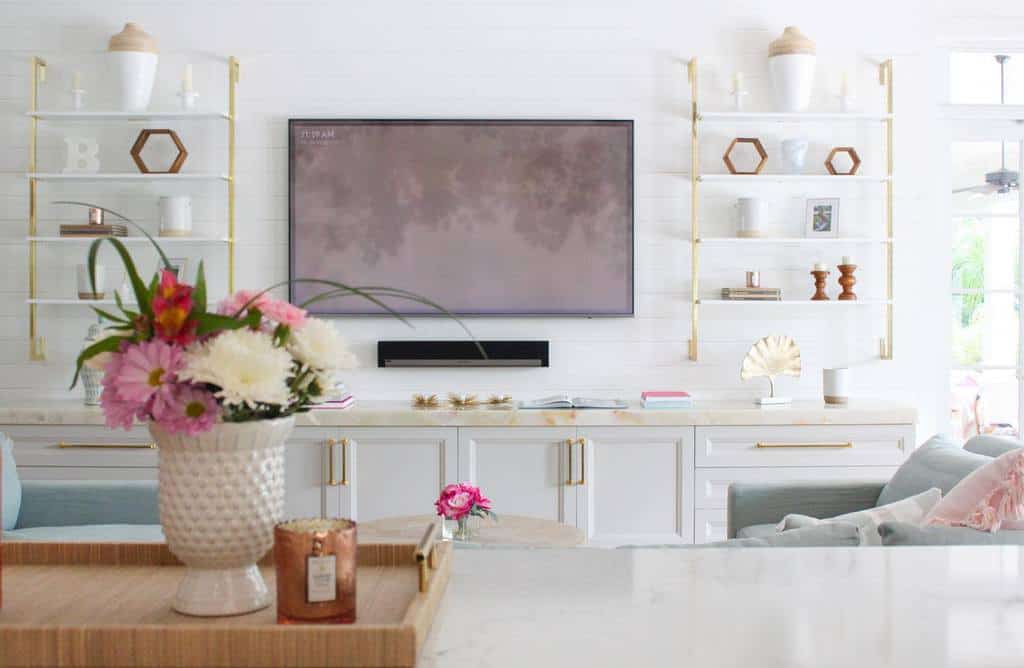
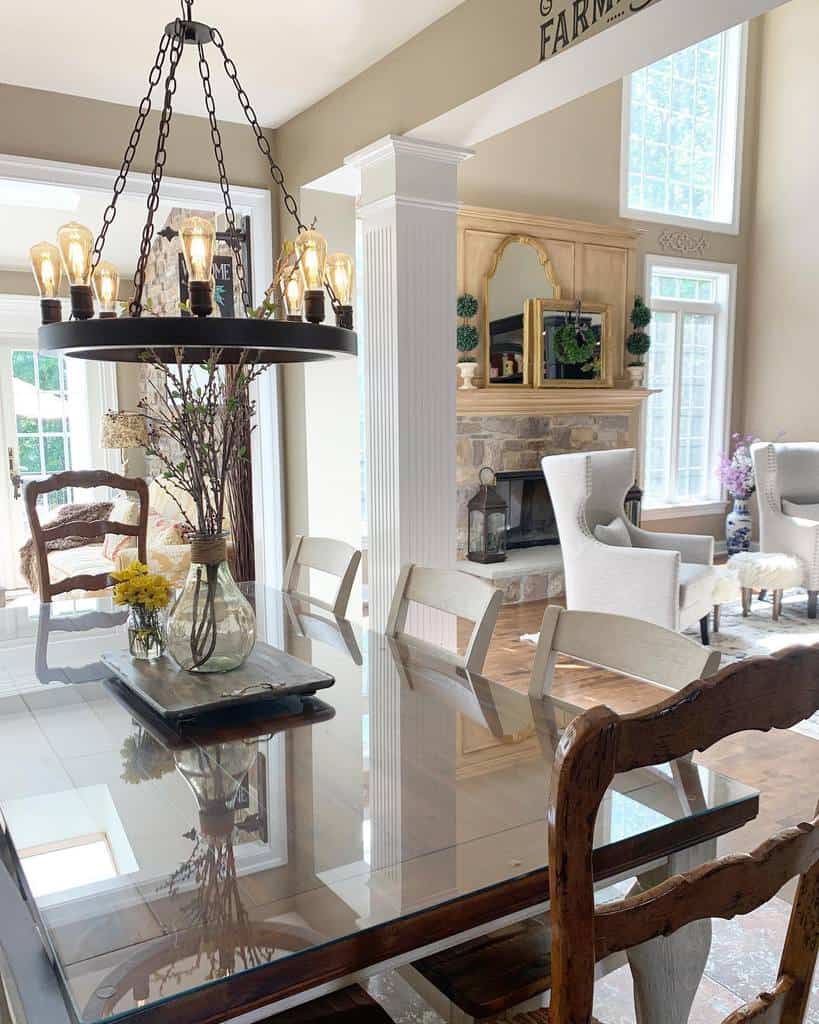
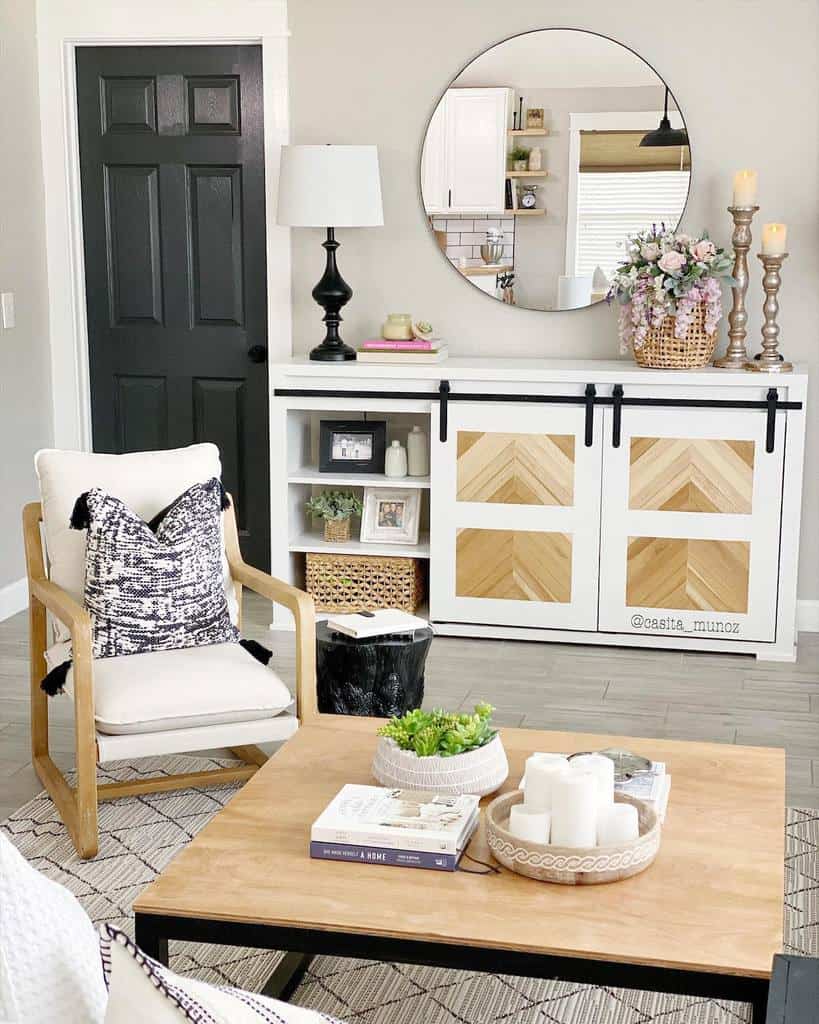
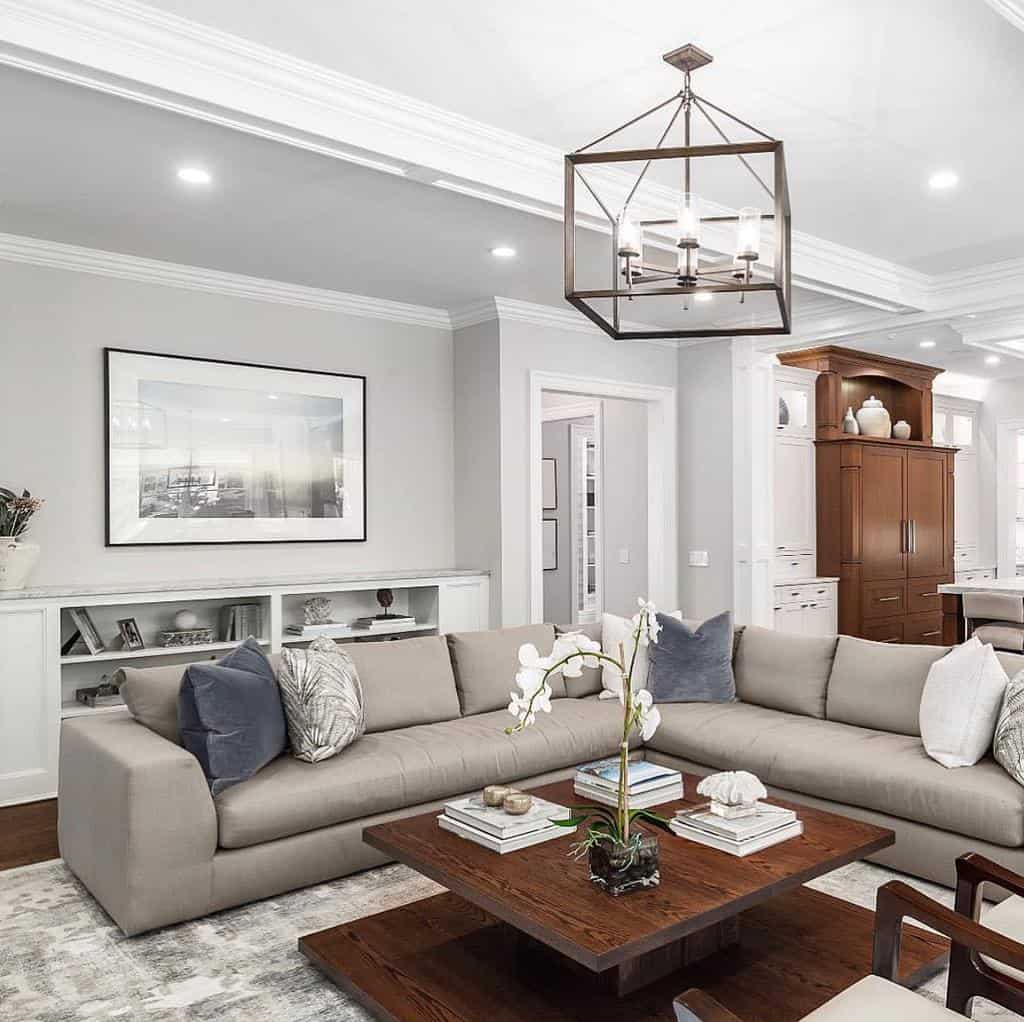
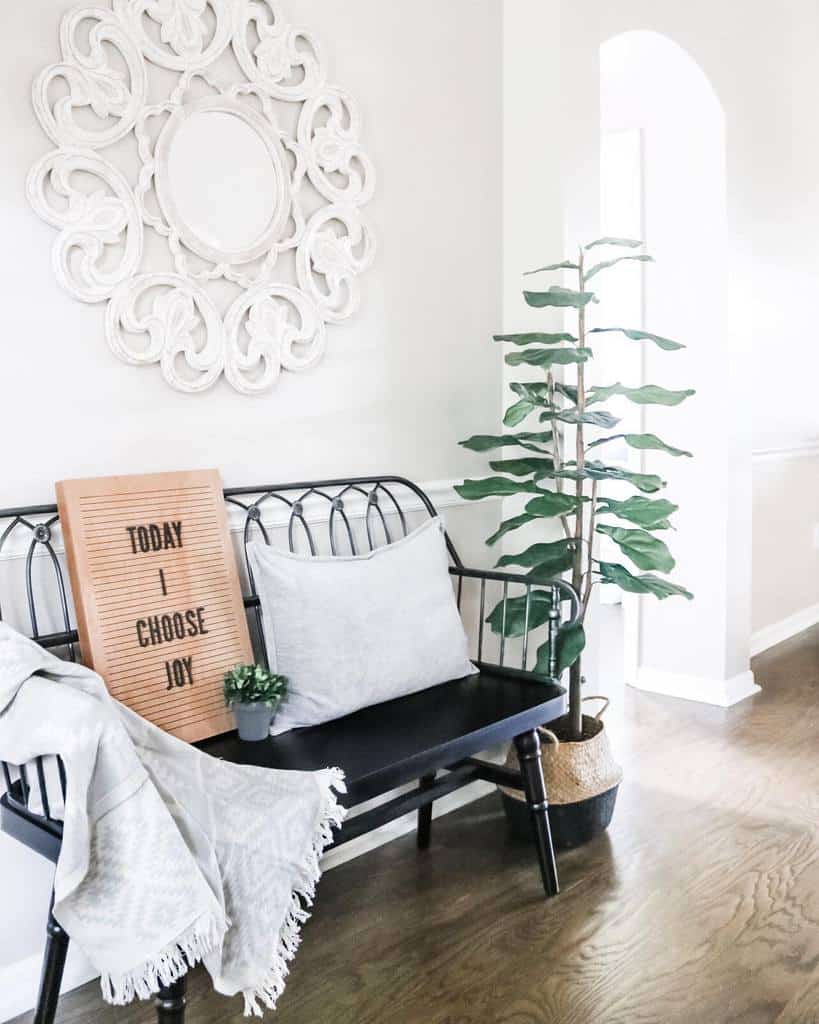
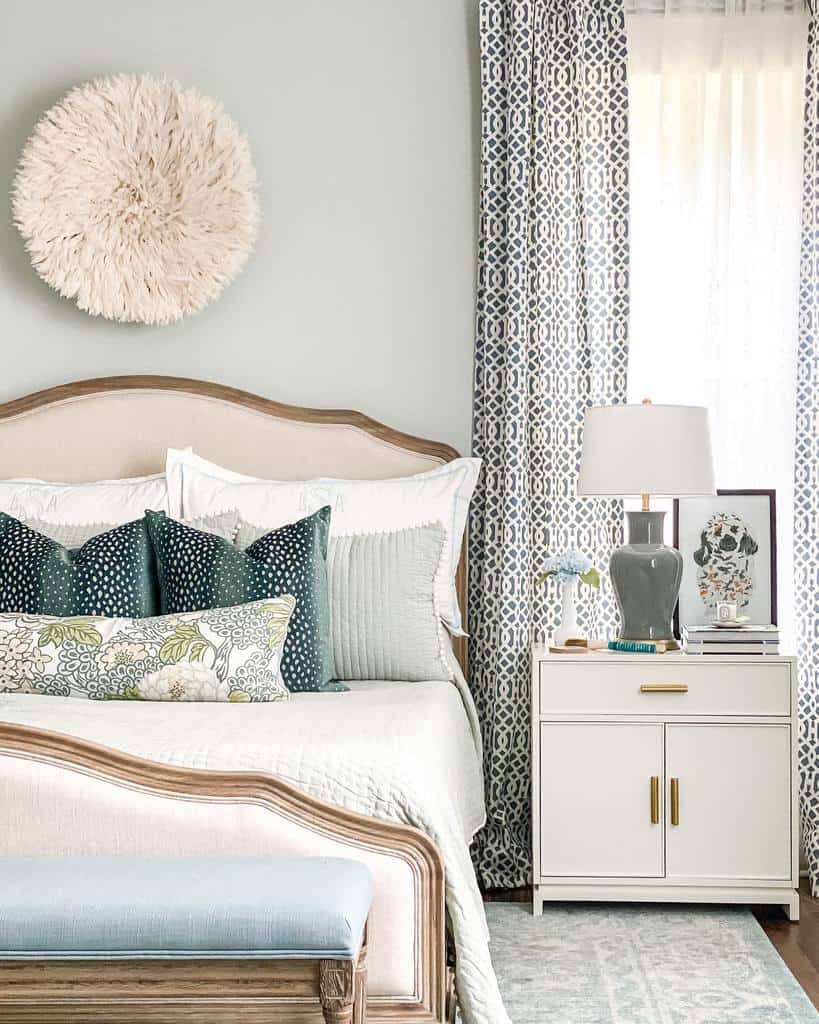
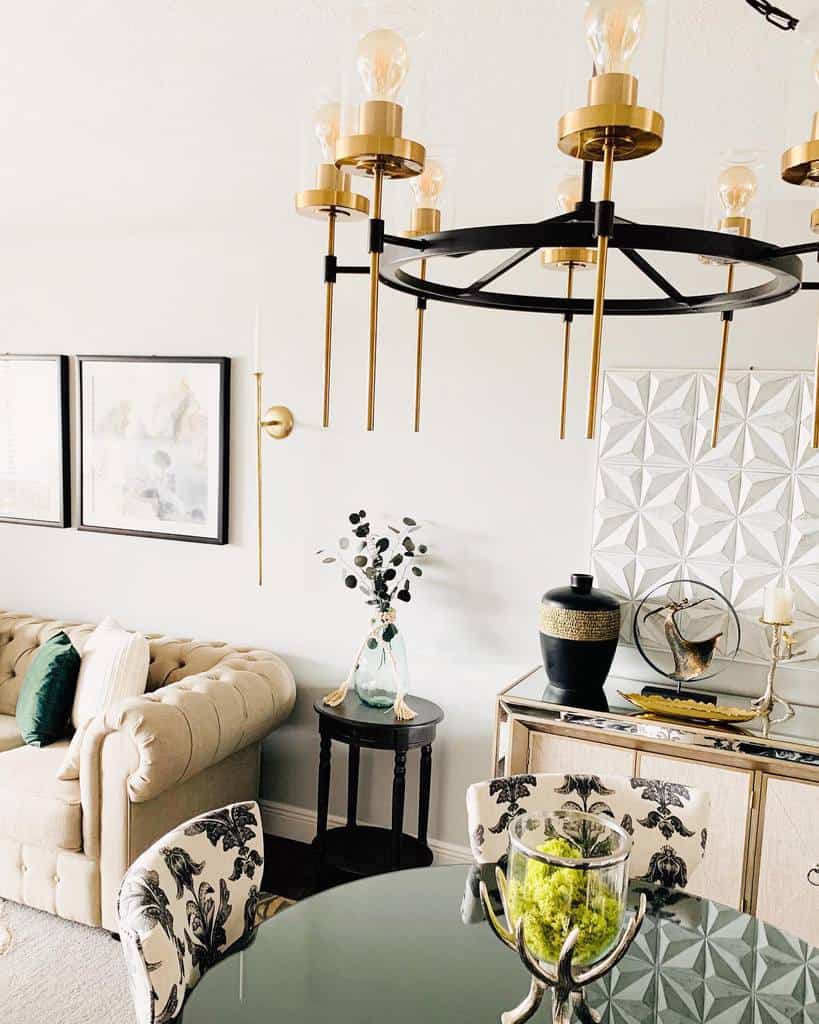
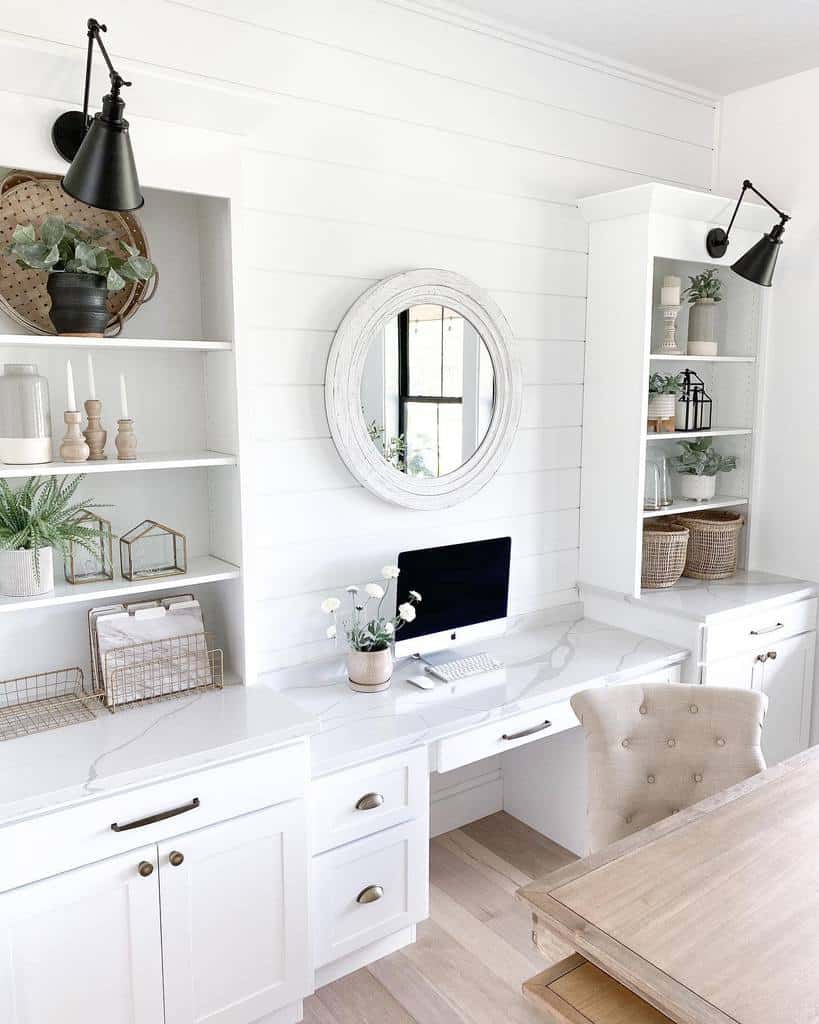
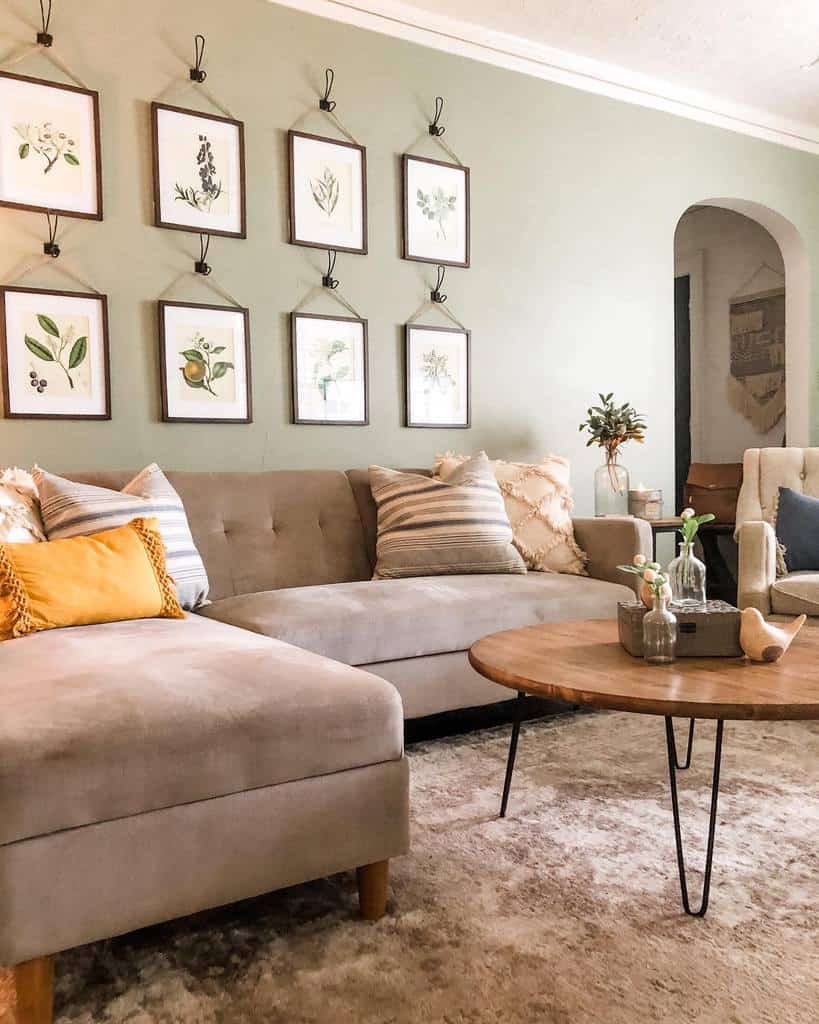
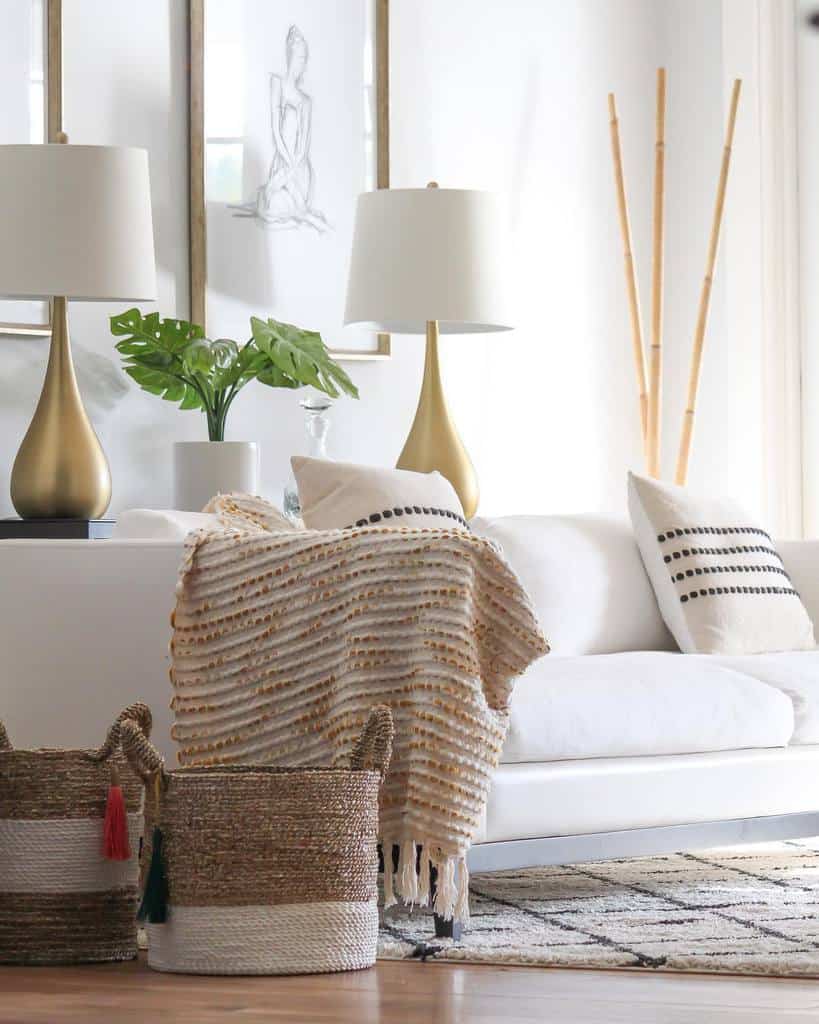
4. Evolution of the dining room
Bring transitional style to your dining room. The neutral color palette will be a key component of the design. Use similar accent colors found in the rest of the house to ensure your rooms flow together.
A massive dining table will be a fundamental element of the room. A large foundation provides ample seating and is great for entertaining. Traditionally upholstered chairs in neutral tones are aesthetically pleasing, but mixing furniture styles can also work particularly well.
Complement the traditional decor with an elegant chandelier or modern lamp. Keep decoration in this room to a minimum and choose accessories that add interest to the dining room rather than overwhelming it. Items can range from an accent chest or large buffet to a large framed painting or mirror to add the perfect touch. The combination of curved and straight lines will further enhance the embellishments, creating a truly transitional design.
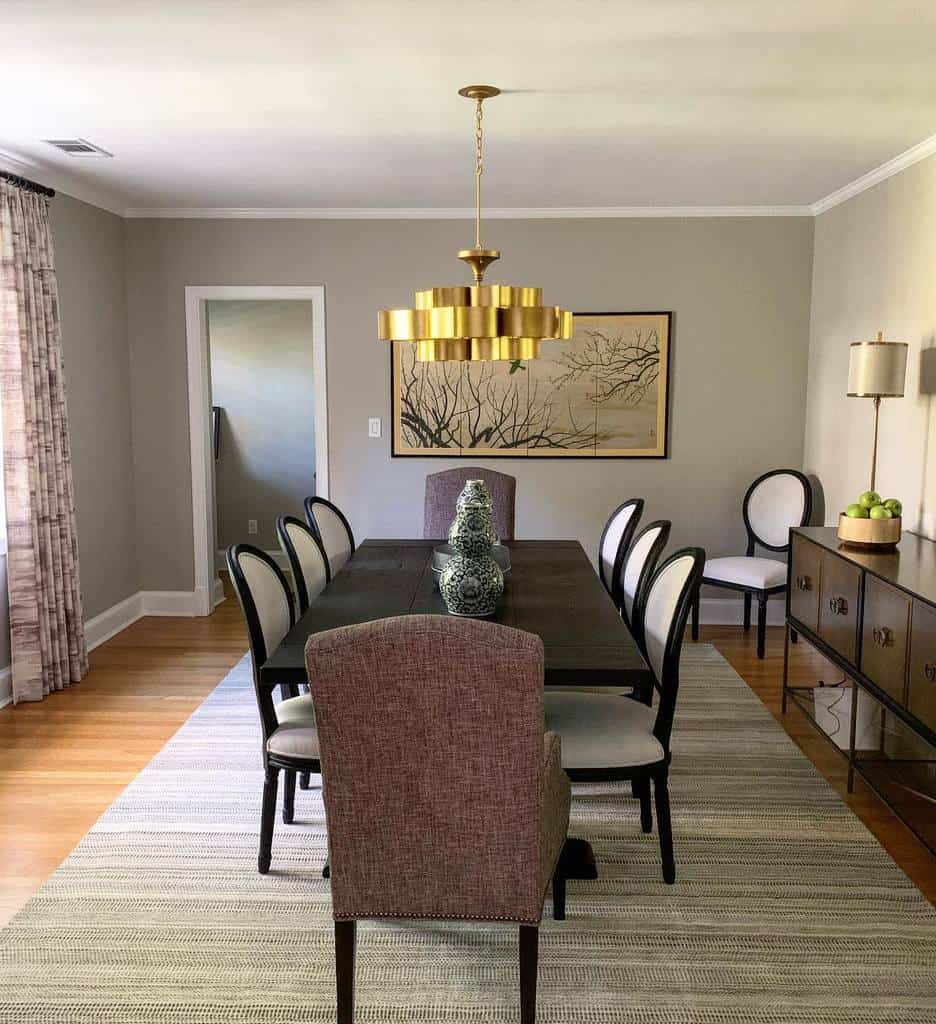
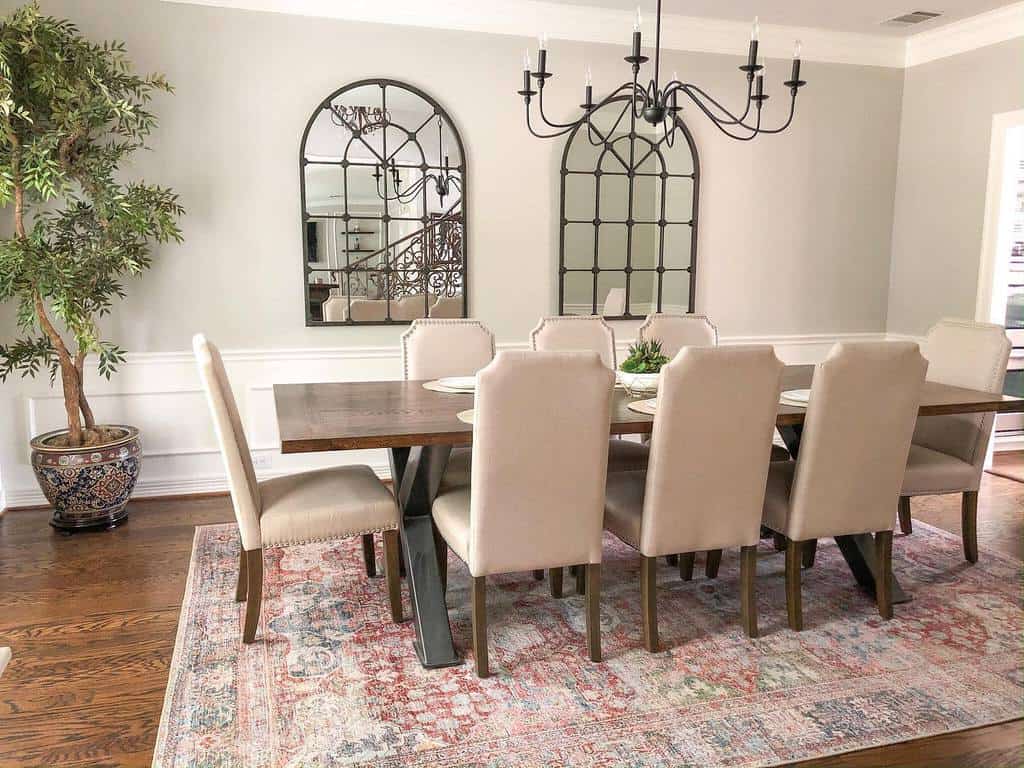
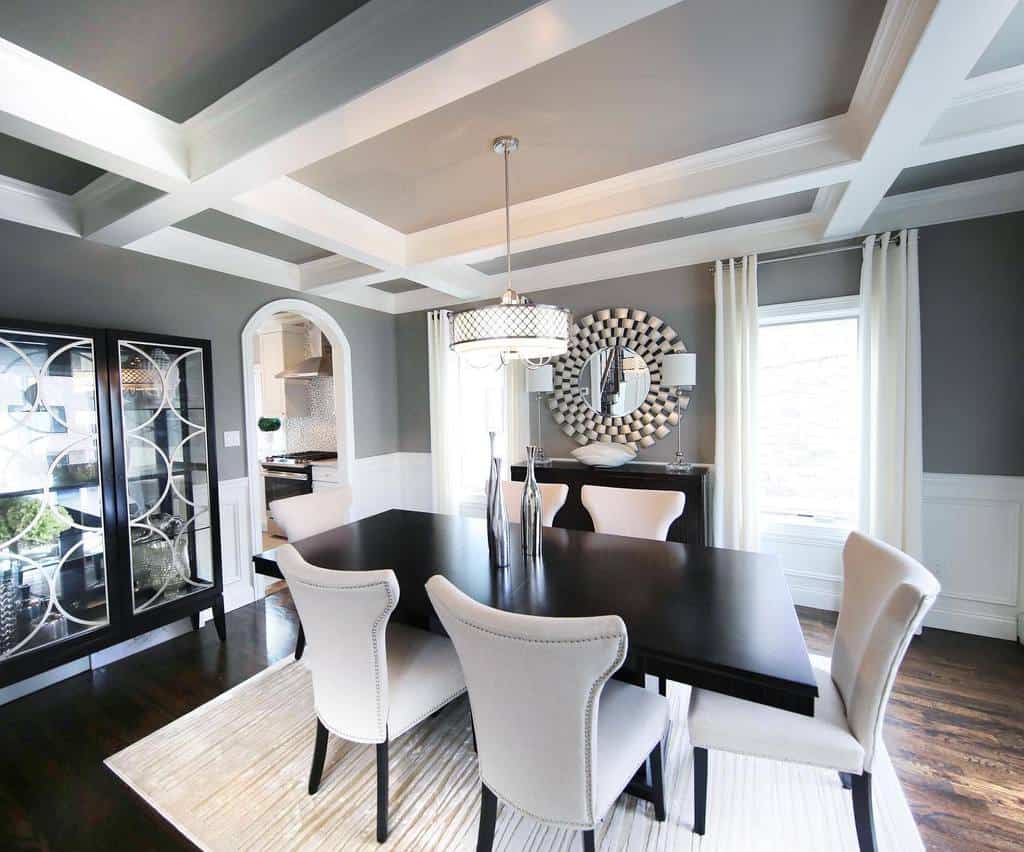
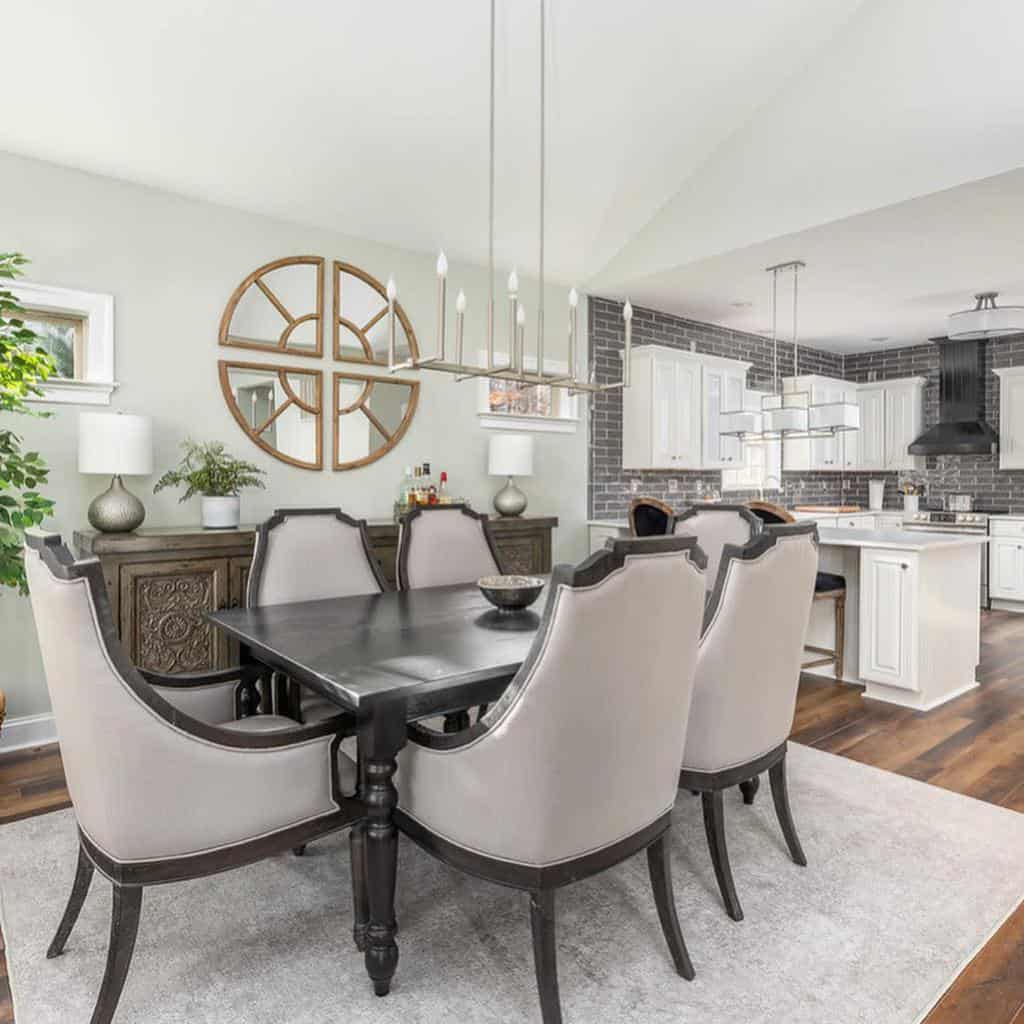
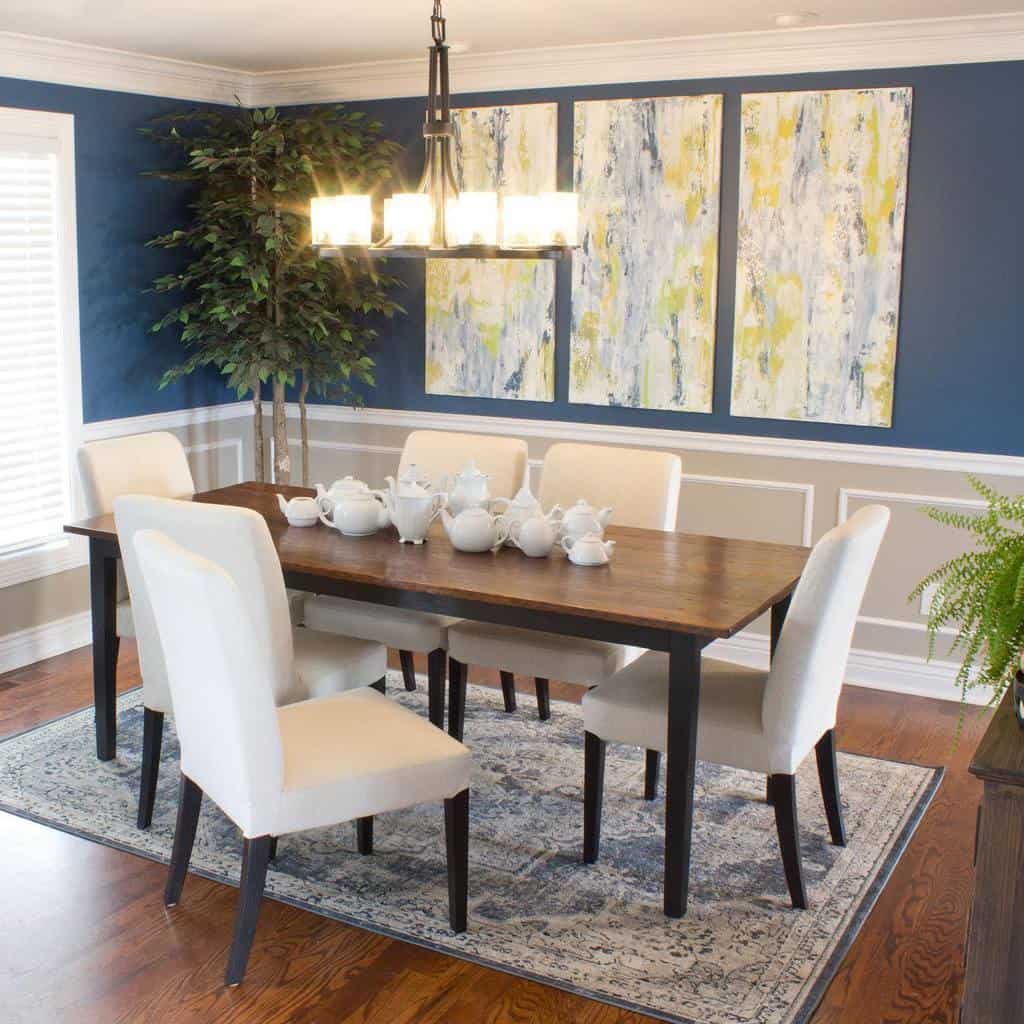
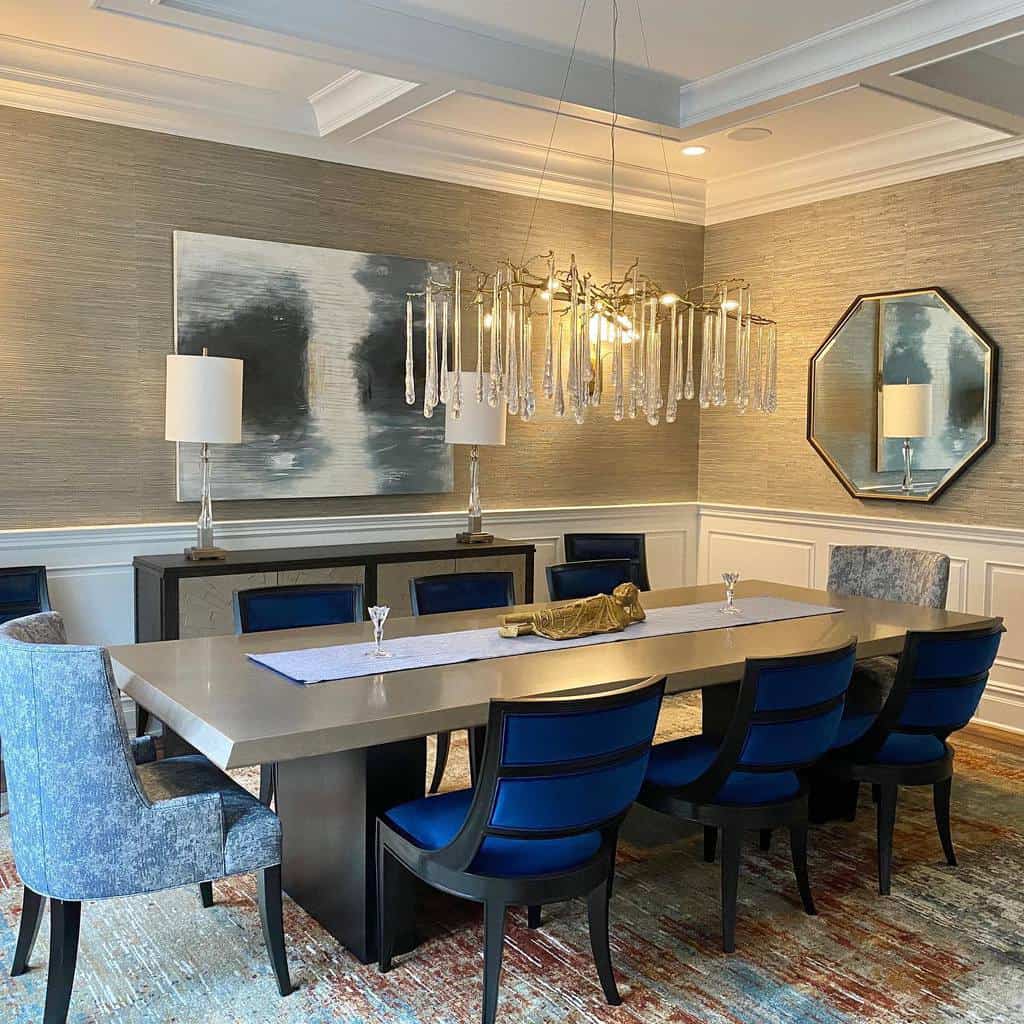
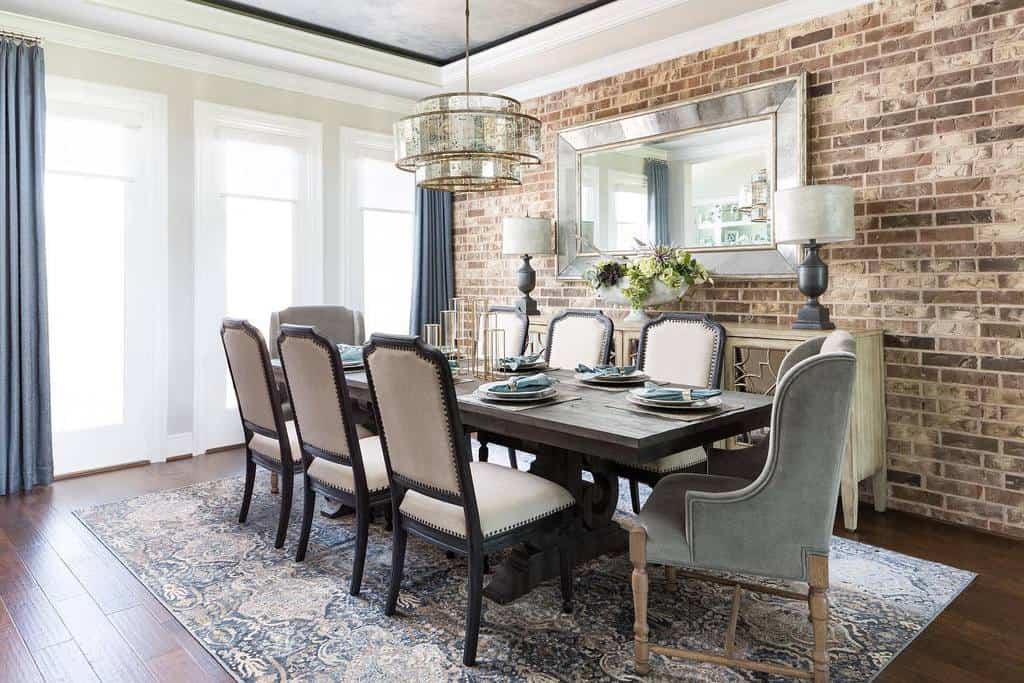
5. Kitchen innovations
Sleek, clean lines meet the comfort of a traditional style to create an inviting and modern kitchen. Seamlessly upgrade your space with white shaker-style cabinets. Avoid intricate carvings or details on the furniture as these can detract from the transitional design.
Wood tones instantly soften the light tones of your kitchen space. Hardwood floors are practical and durable, but they can be costly. Consider laminate flooring as an affordable alternative. Floating wooden shelves are another modern accessory that also provides additional storage space.
Show your personality with an island in bold colors. Think deep midnight blue or charcoal gray tones to counteract the light walls. Curved furniture and modern pendant lights fit together perfectly, creating a cohesive transitional design. Different cooking utensils and dishes fit together without it looking too chaotic.
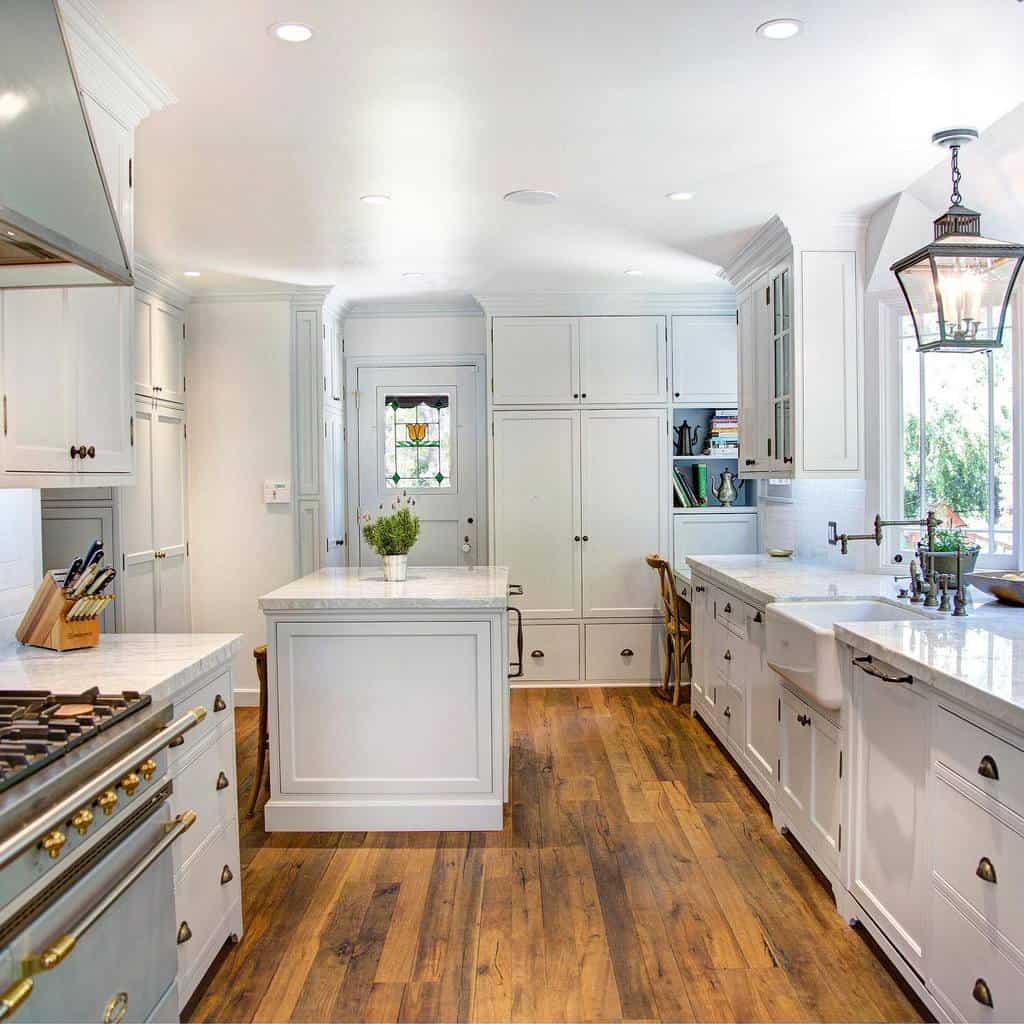
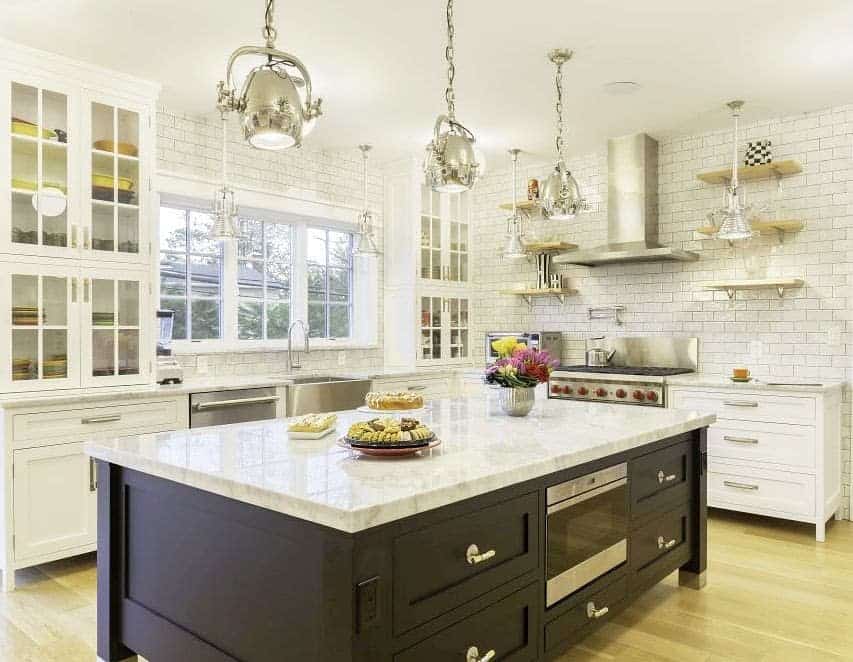
6. Living room magic
The living room is the focal point of a home, and what better way to set the tone than with a base of cozy, warm neutrals? Take it to the next level with the introduction of bold dark shades. Whether through an armchair or a patterned throw pillow, the addition of color will move and intrigue the eye. This way you can also put your facility in the spotlight. The aim is to create cohesion with common denominators while maintaining traditional elegance.
Let the natural architecture of your home shine. Keep the central elements of the room, such as fireplaces or shelves, white and bright. Opt for simple, clean window treatments in the living room. This way you ensure that natural window light brightens up the neutral wall color. This makes your room appear larger overall.
Show off your personality through unique accessories that double as conversation pieces. Remember to keep things simple. Less is more to achieve transitional style. The touch of wood accents is an excellent addition. Give the room an even more modern feel with different textures and fabrics like leather and suede.
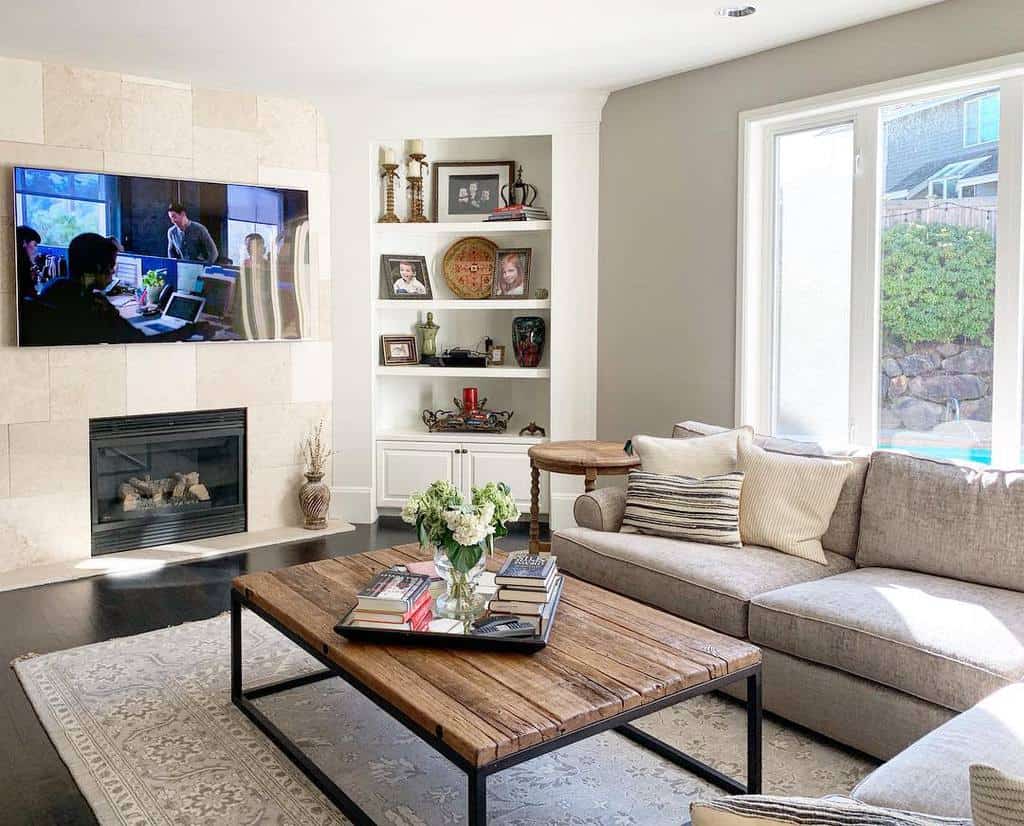
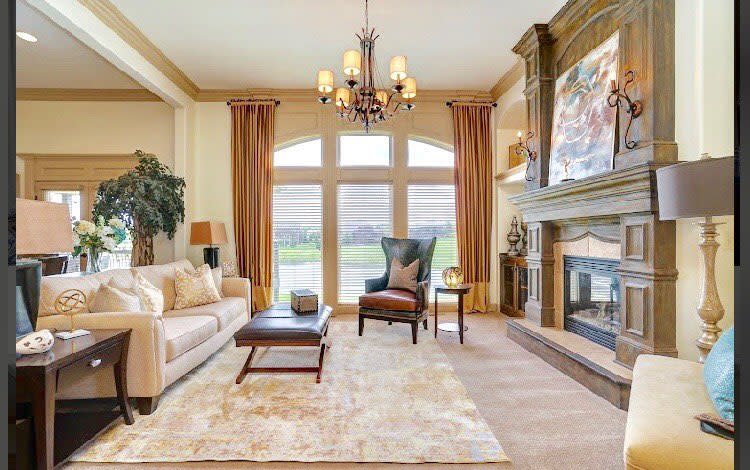
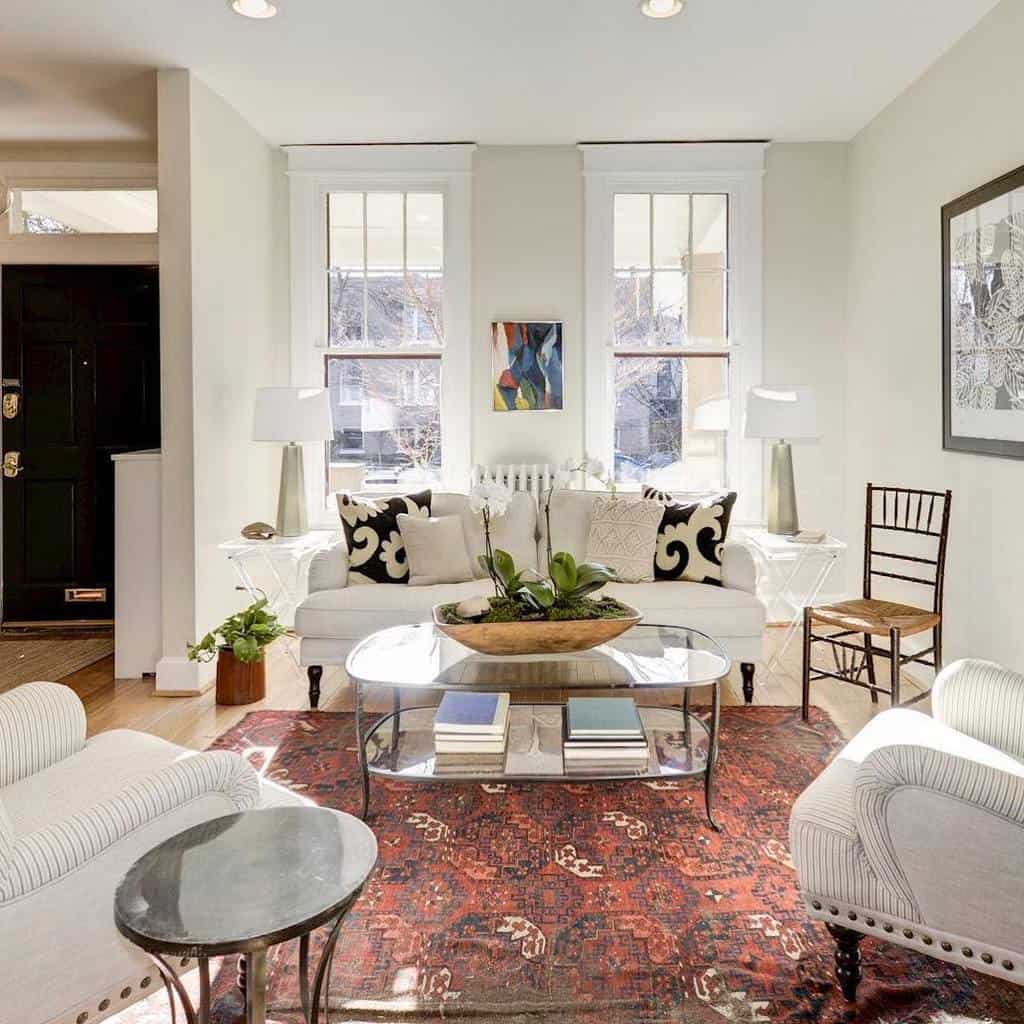
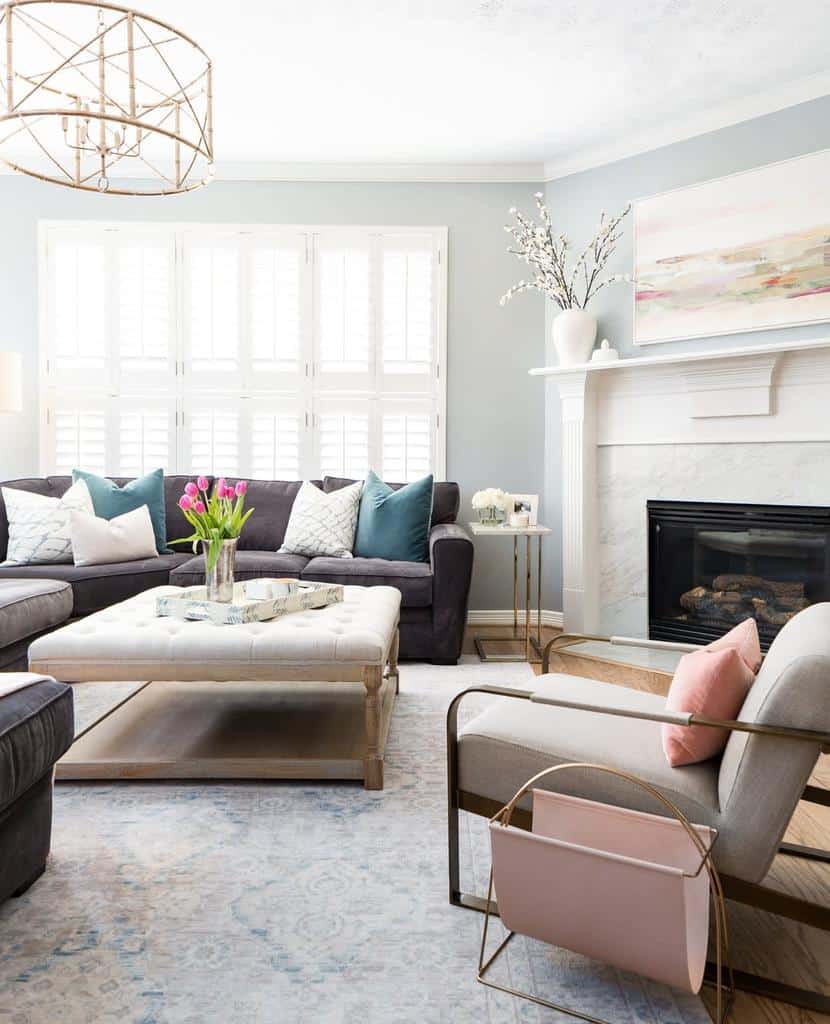
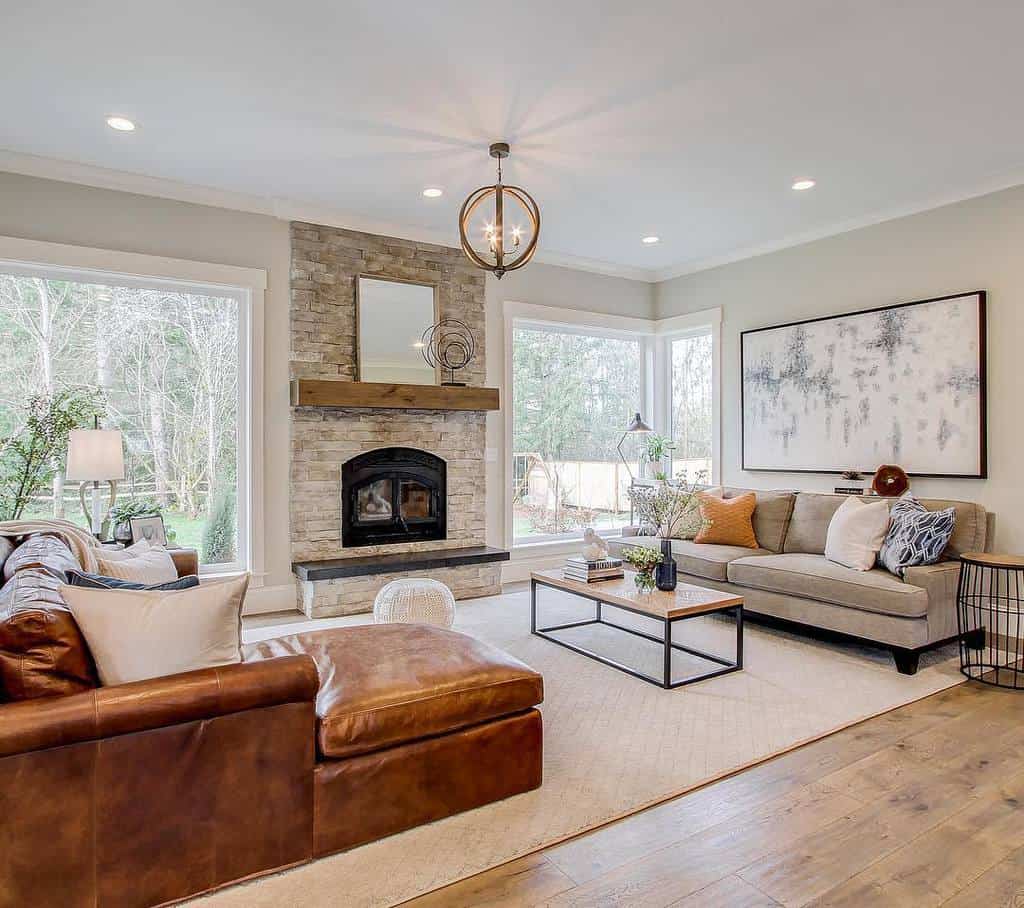
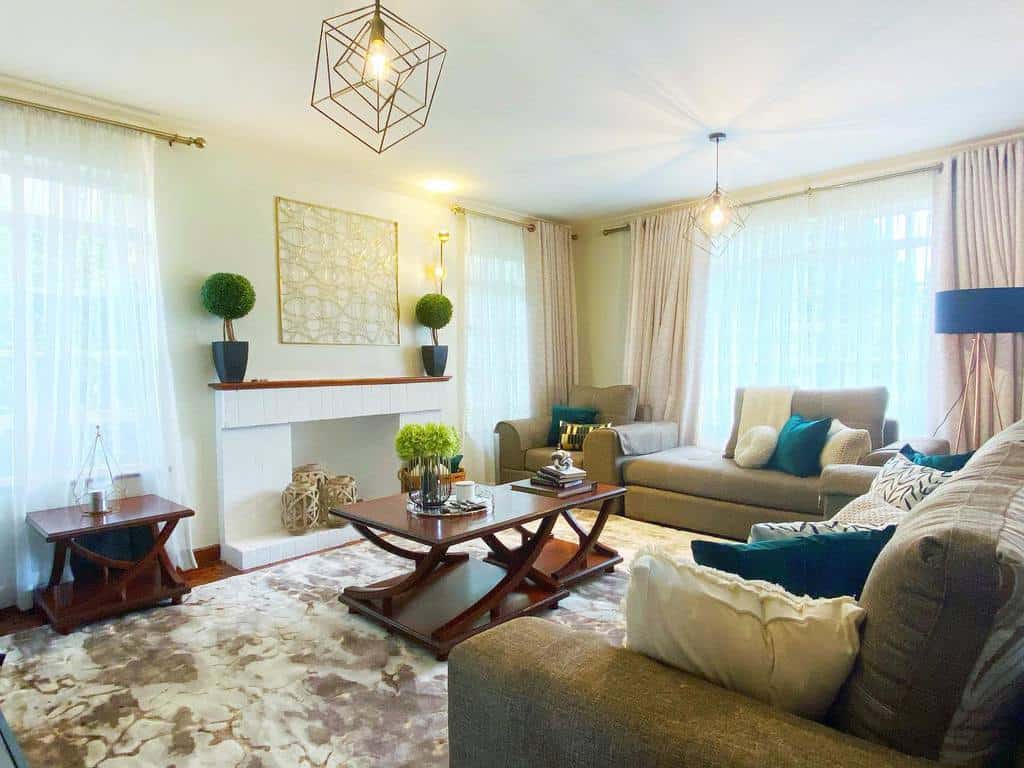
7. Traditional furniture elegance
The mix of modern and traditional lets your creativity run wild. Large classic pieces of furniture receive a modern makeover to enhance their sophistication. In a transitional space, curved and clean lines combine to convey both a masculine and feminine feel. Two-tone furniture embodies a simple design.
Get innovative when choosing your furniture. Transform your favorite accent chair by reupholstering it to give it new life. Adding texture will play a leading role. Popular transitional fabrics include suede, leather, chenille and velvet. Adding a layer of color or detail to a side table or coffee table can provide a simple, elegant upgrade.
Choose unique items in each room that will serve as conversation starters. Whether it’s a collection of dining chairs or a modern ottoman, each piece should be well thought out and serve a purpose in your home.
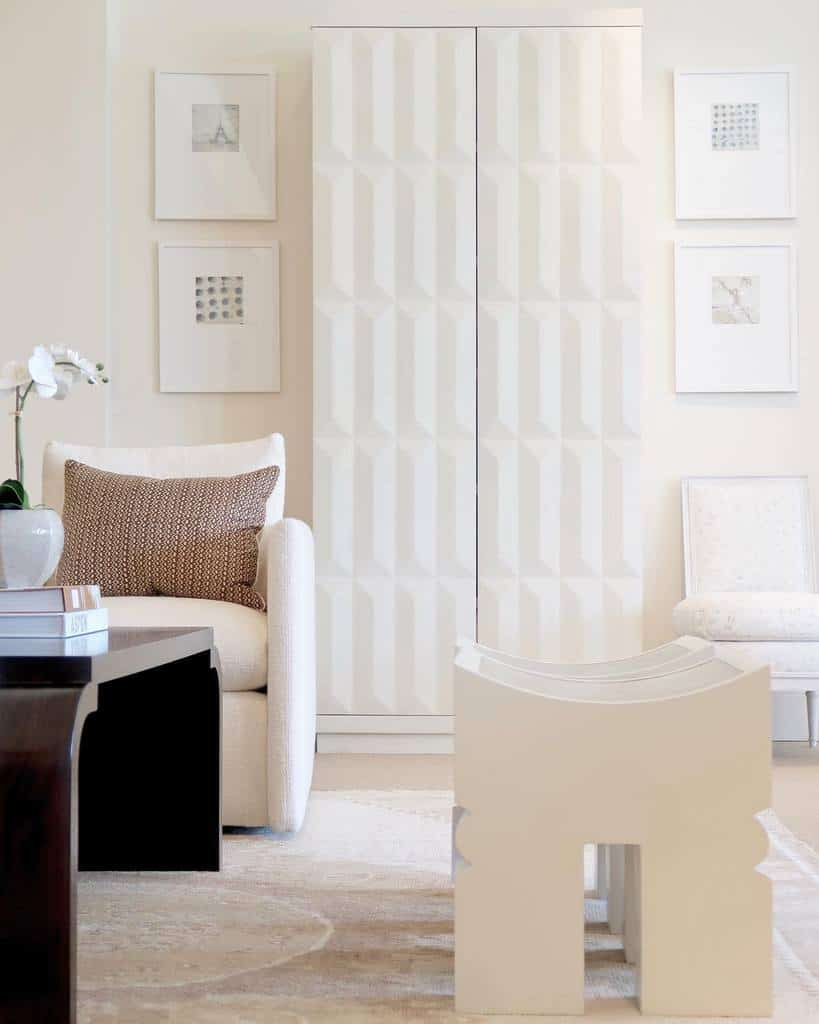
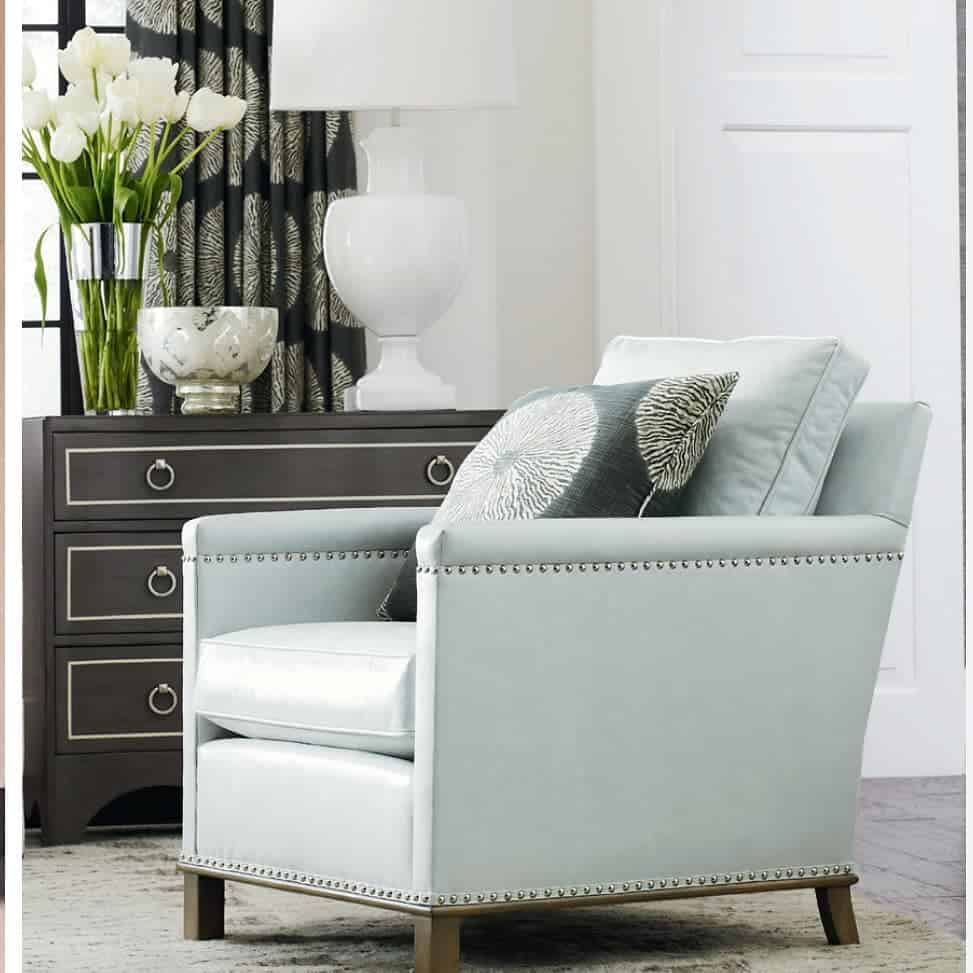
8. Thoughtful transitional design for your home
If you prefer styles from the past and present, transitional design is for you. Incorporating elements from two design styles can sound intimidating to create balance, but the look is simpler than it seems. The combination of traditional and contemporary elements blend effortlessly and you can display them anywhere in your home.
The contrast variations are essential. Deep, bold accent colors add the necessary masculine touch to the neutral background of a room. Trendy blues, greens and purples are typical, but there are no restrictions. Straight lines can be combined well with rounded furniture and complete the overall picture.
Different fabrics, textures and metallic accents underline the modern ambience. Keep your decor simple and focus on choosing quality statement pieces over quantity. The web of designs allows for a fully customizable space that will leave a lasting impression on all your guests.
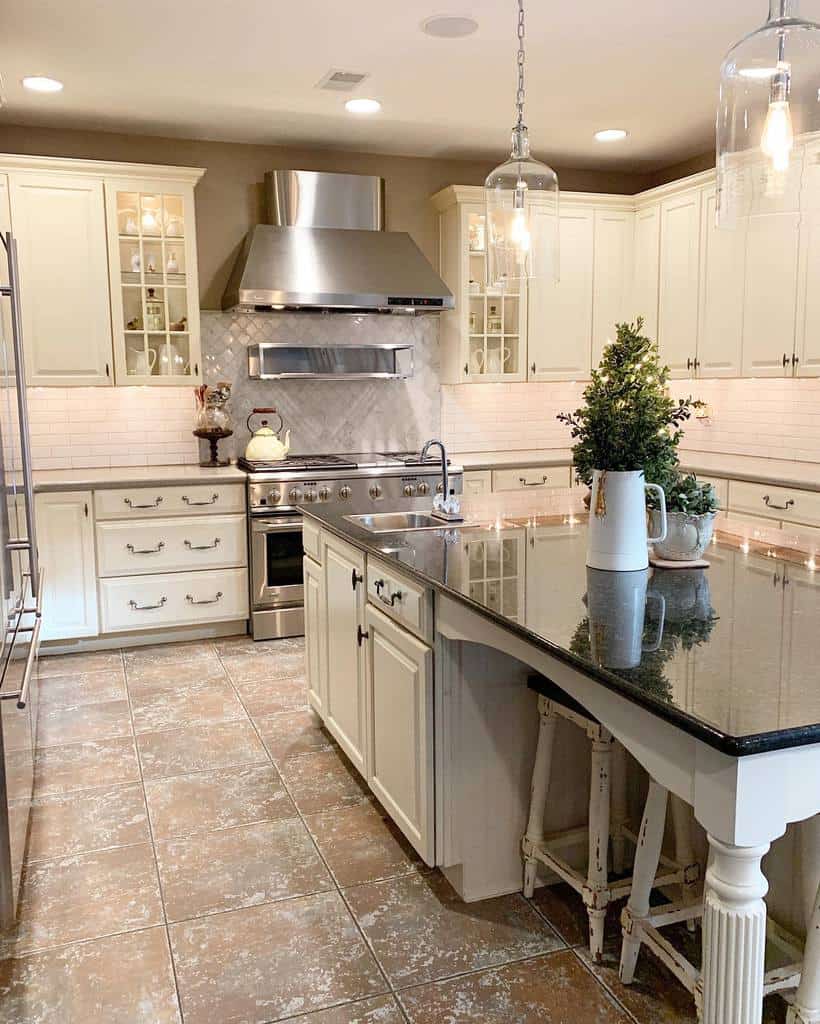
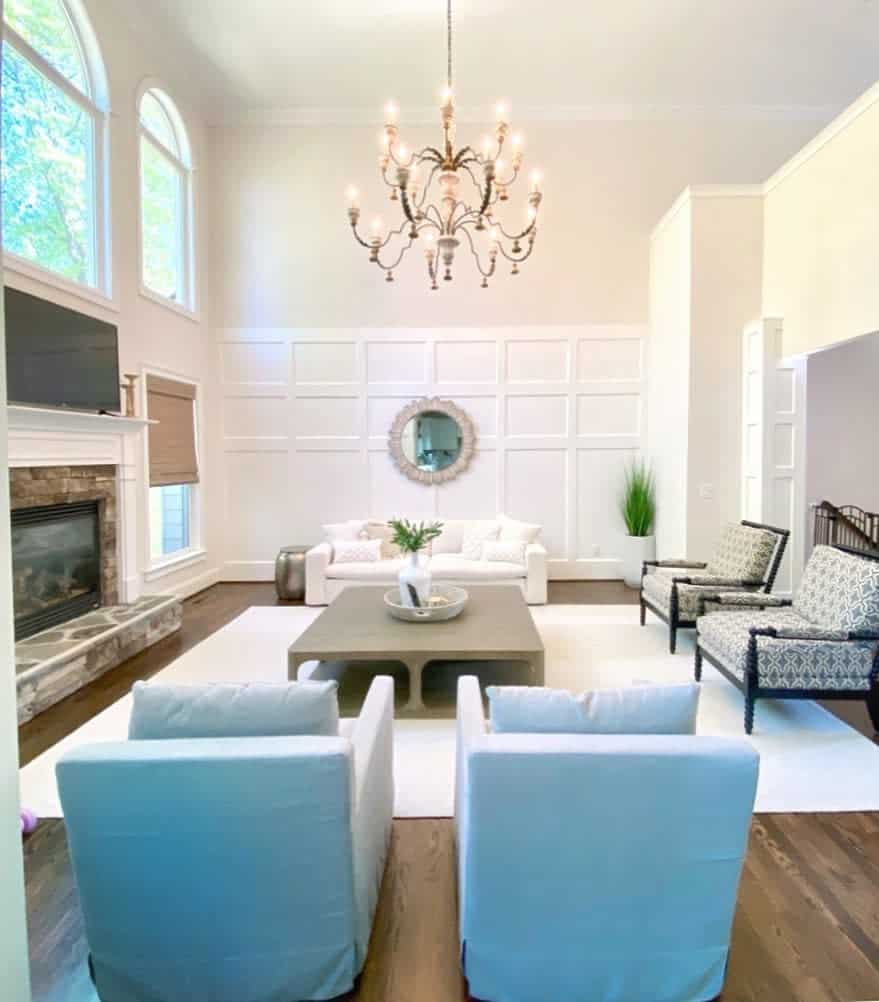
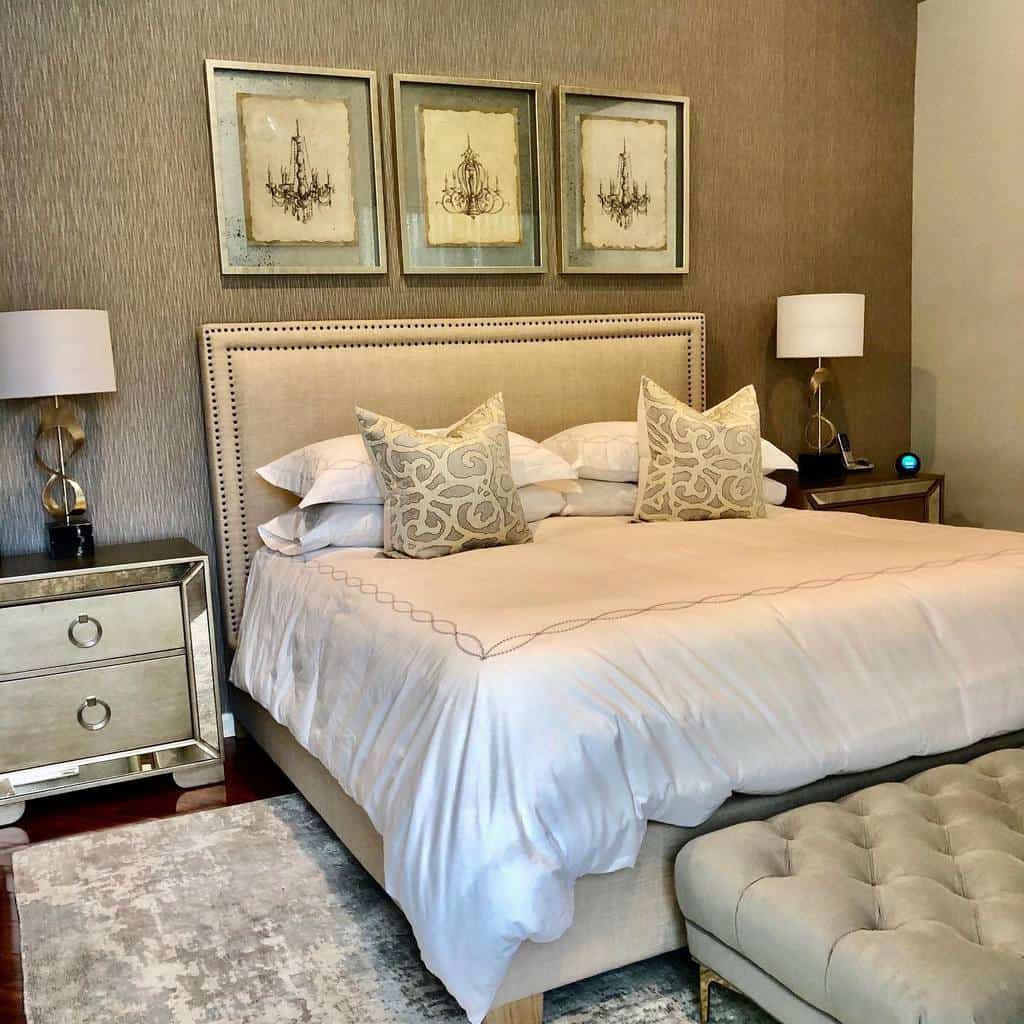
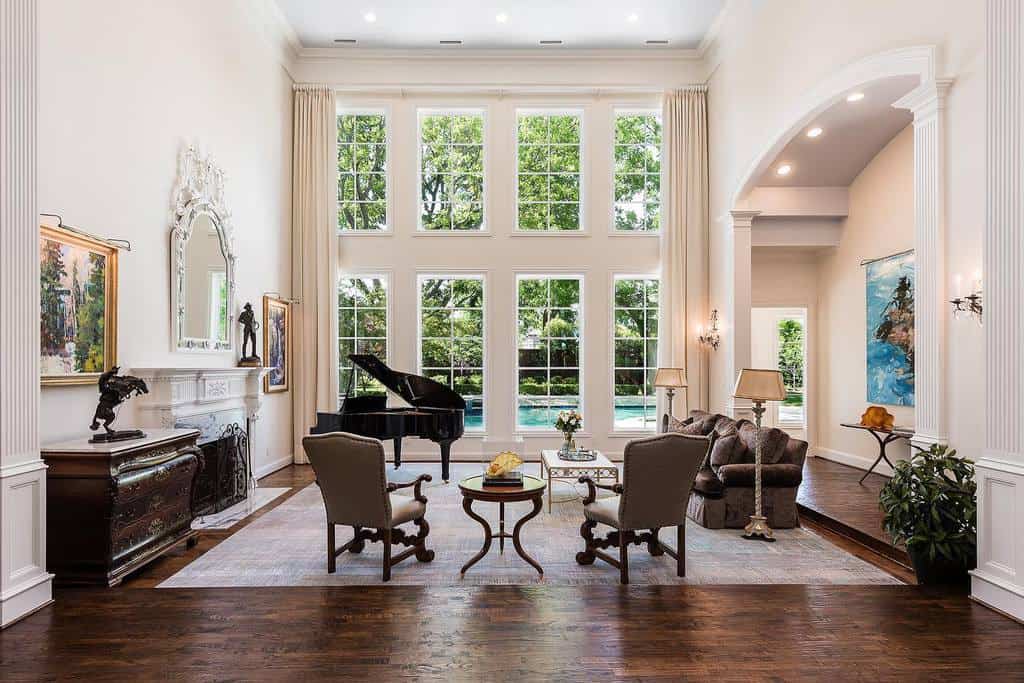
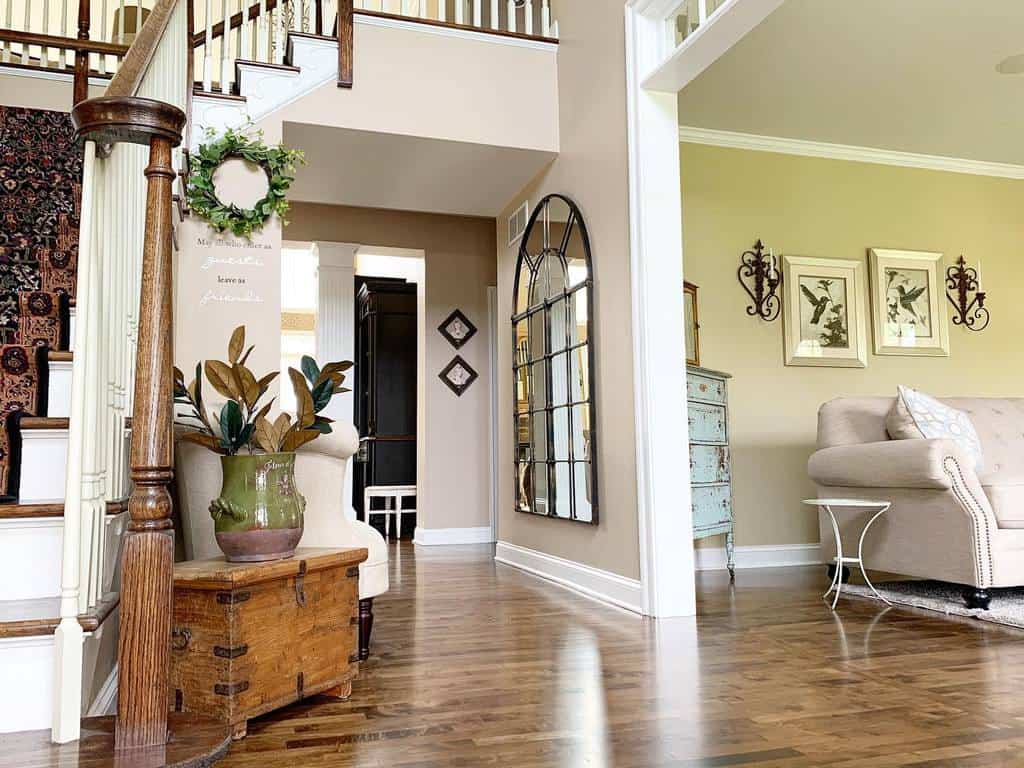
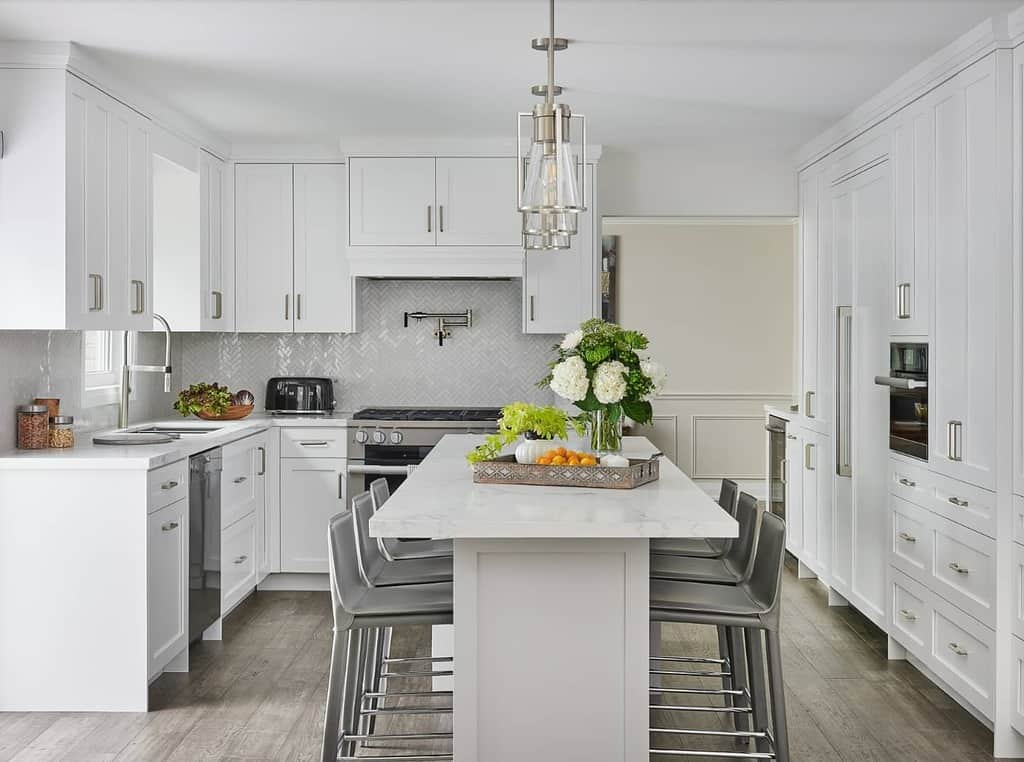
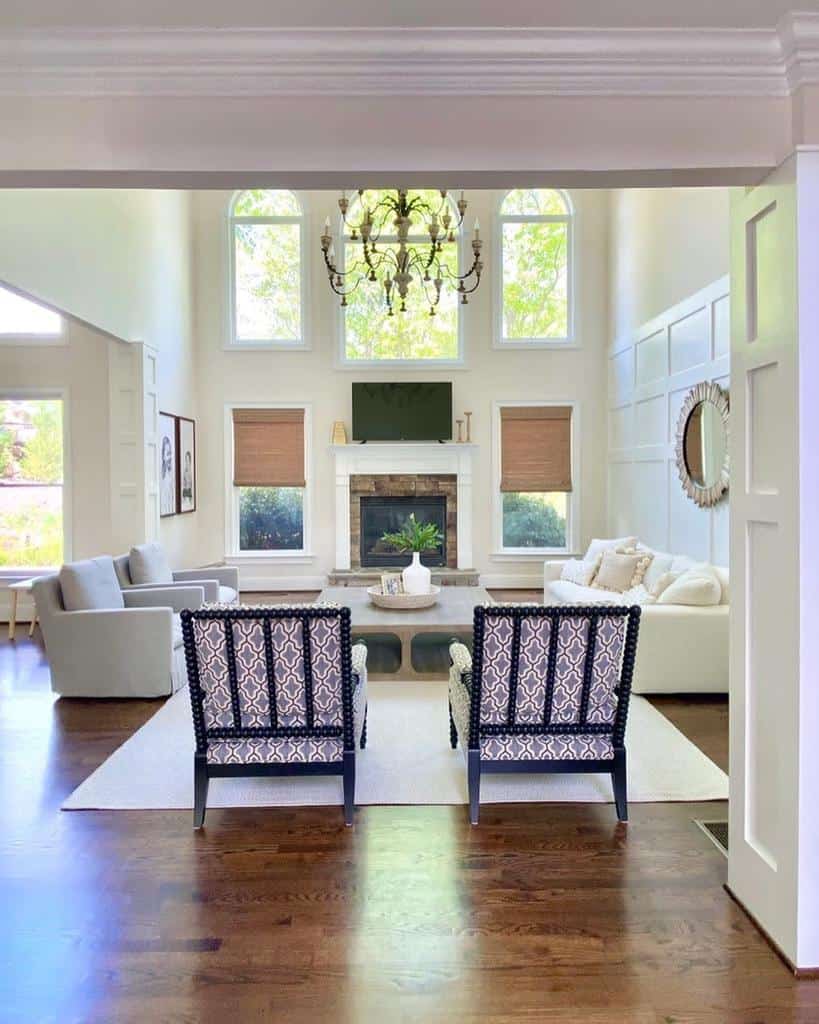
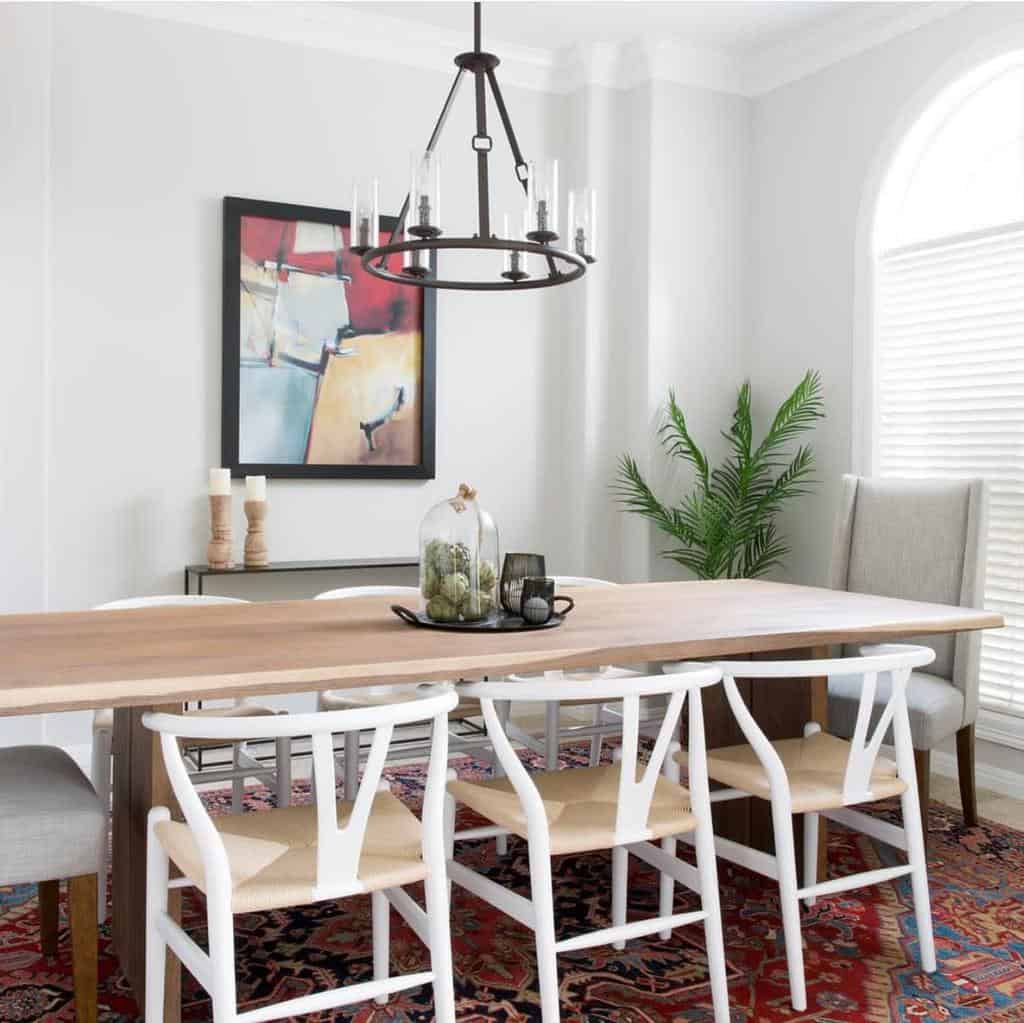
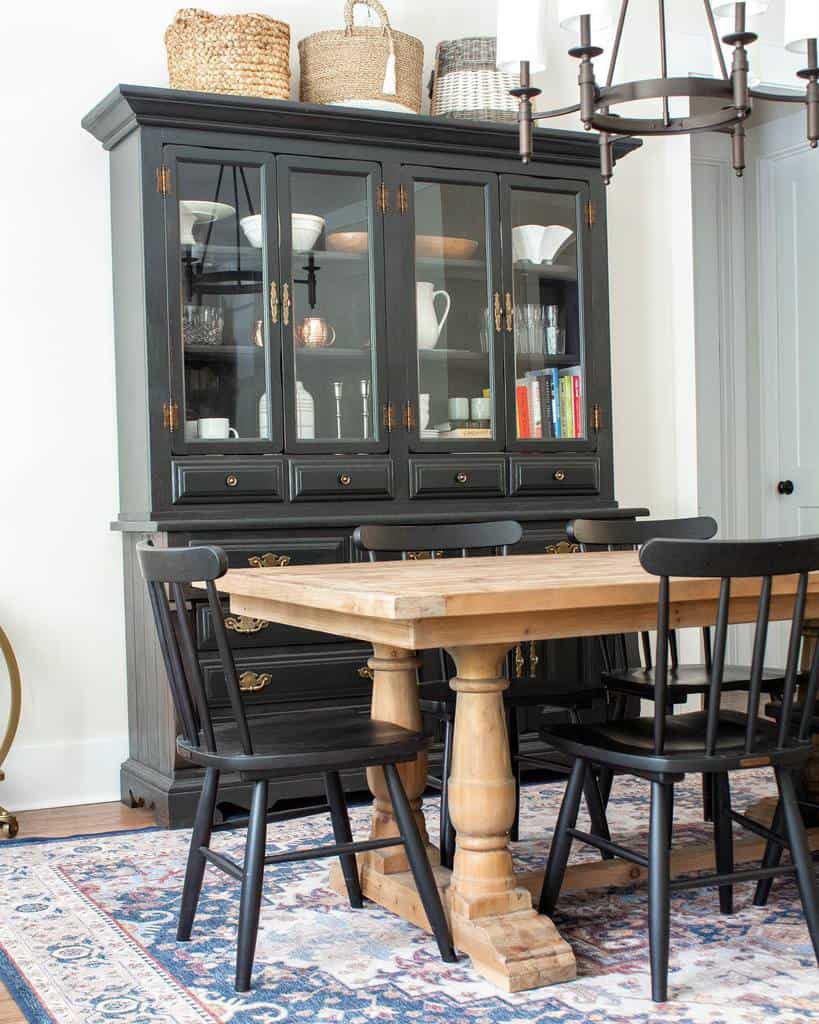
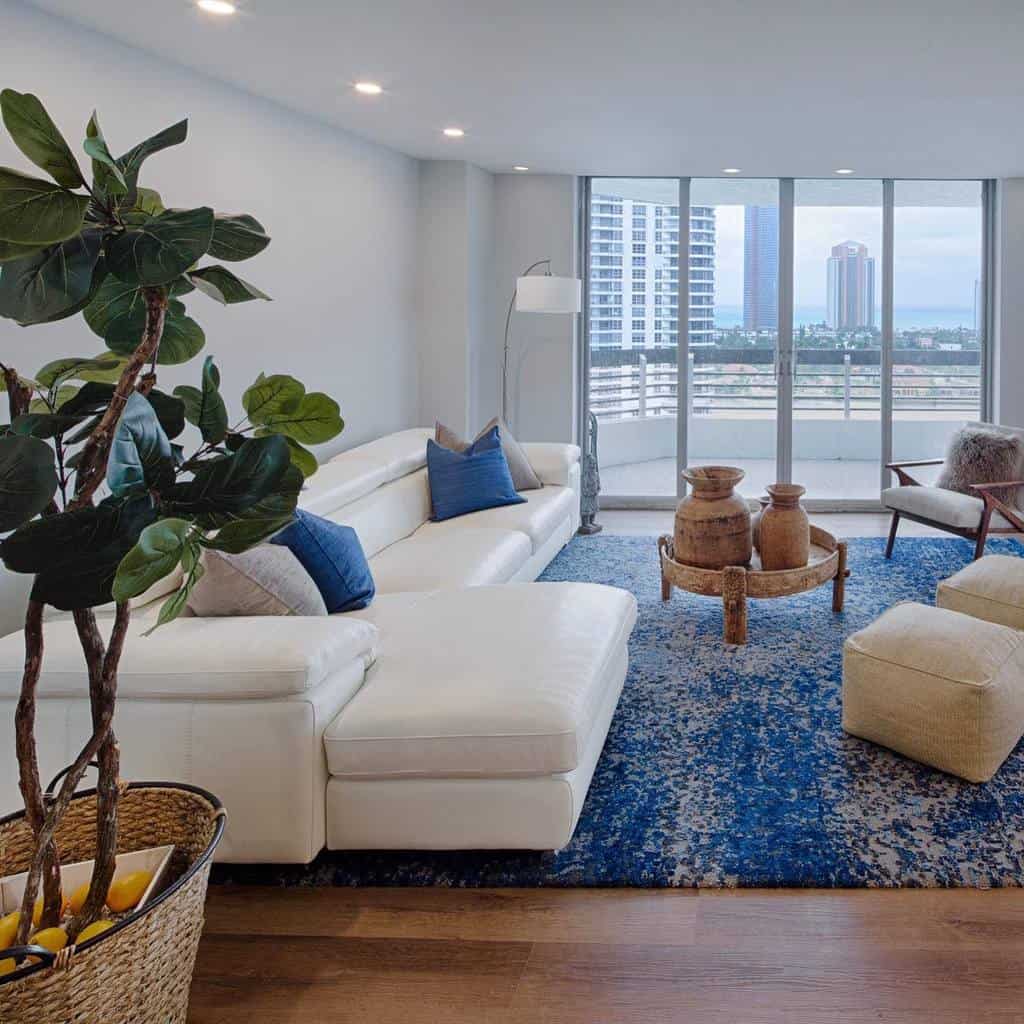
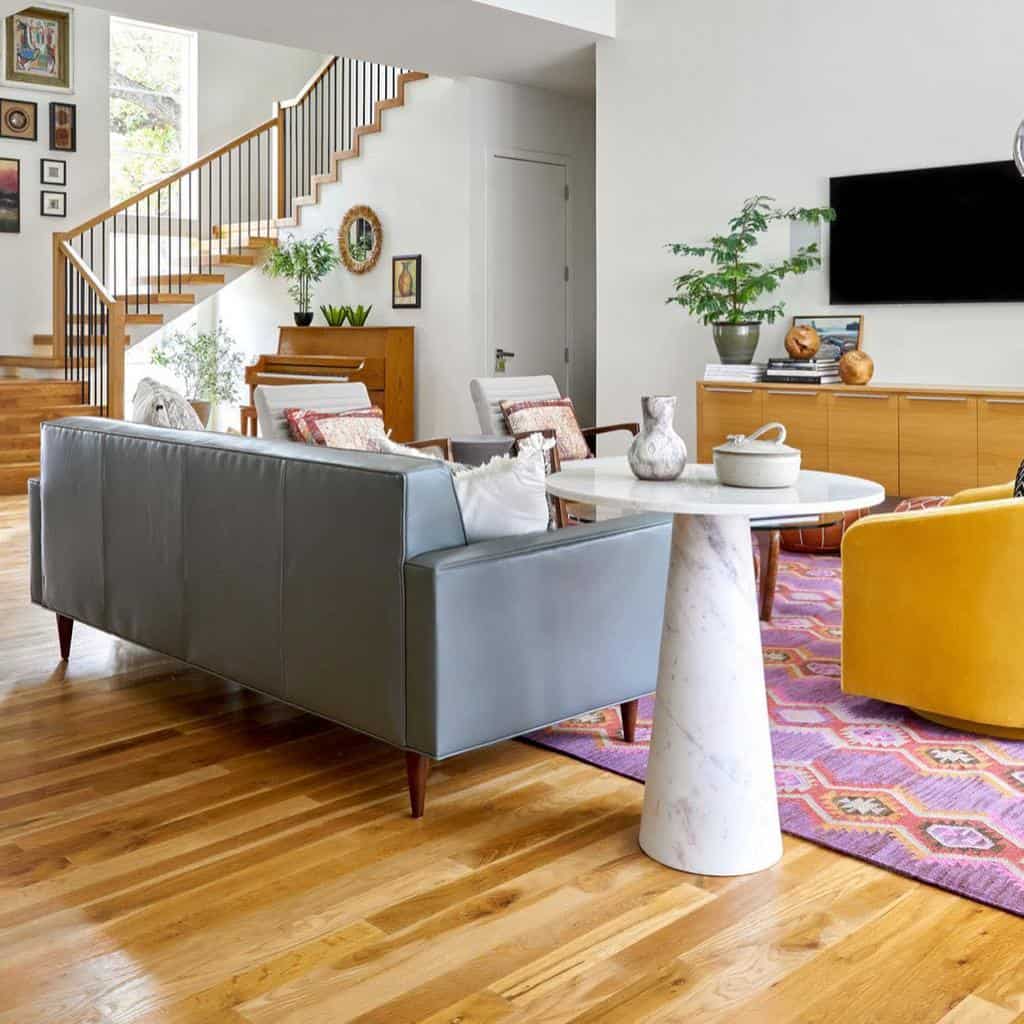
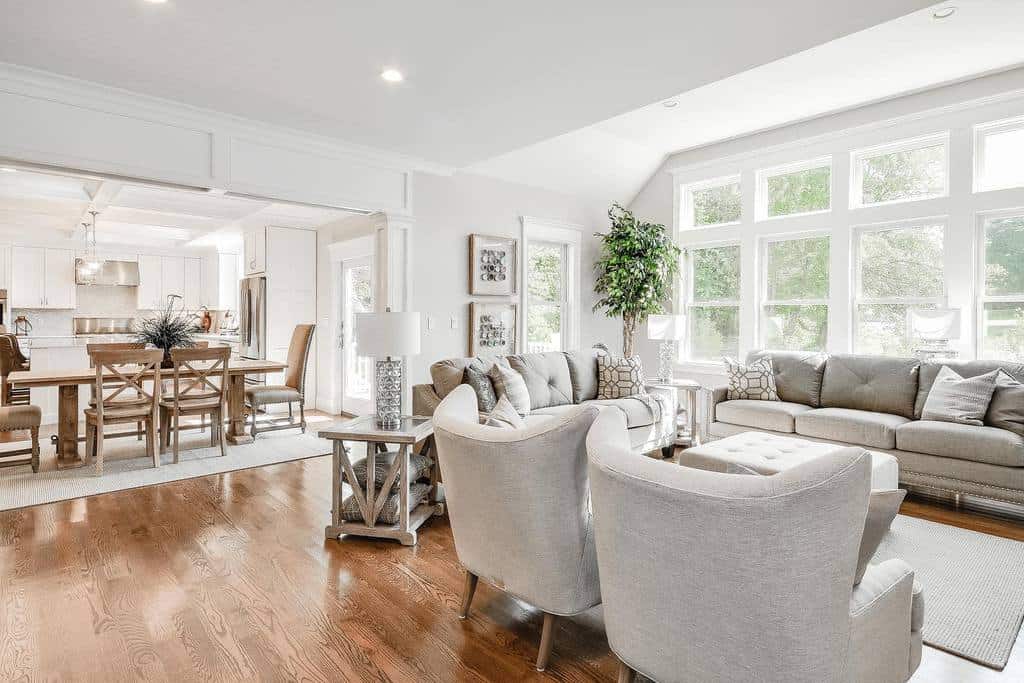
9. Inner brilliance
Have you noticed the recurring color schemes of a transitional design? Painting your home’s foundation in muted hues has many benefits. Trends can often alternate between warm and cool tones and colors, so maintaining a soft base allows for a smoother remodeling transition. A calm, serene background also makes your interior a star.
You should also pay attention to the flow of colors between each room. The pop of color adds a playful touch, but maintaining a harmonious transition is just as important. Variations of a chosen accent color throughout the home are a great way to add depth and variety to any room. Incorporate bold animal prints or textured fabrics for a more unique, modern touch.
Lighting has a huge impact on a room. A dramatic chandelier or modern light fixture adds an irresistible element that is sure not to go unnoticed.
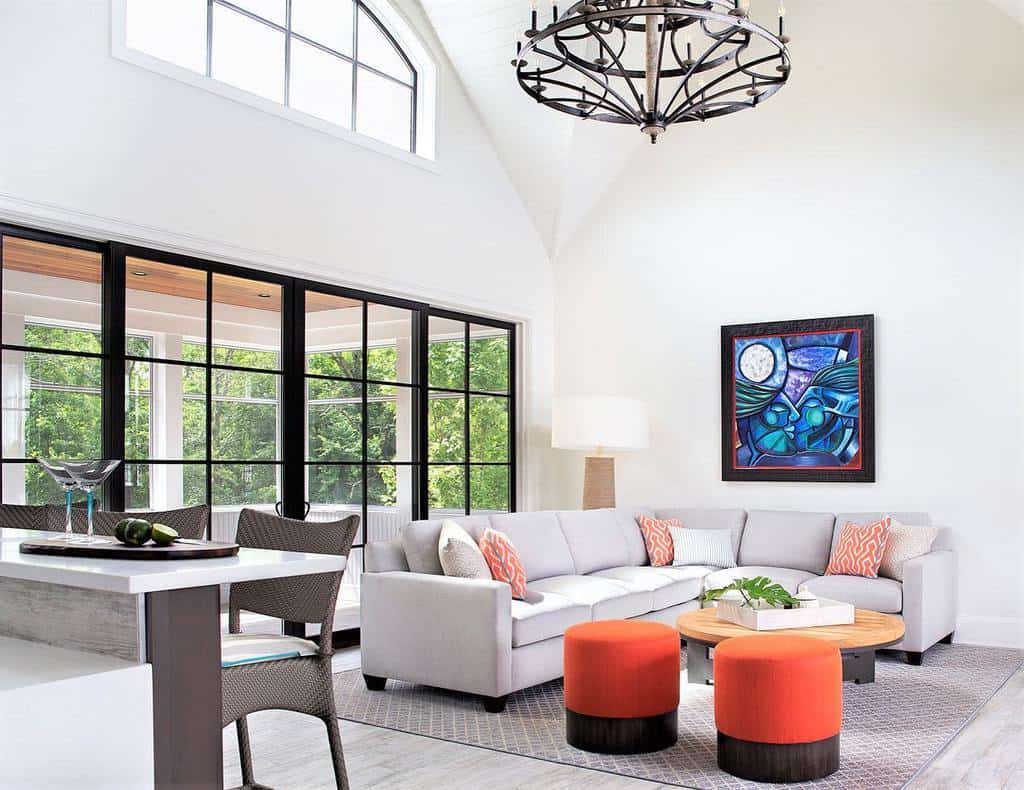
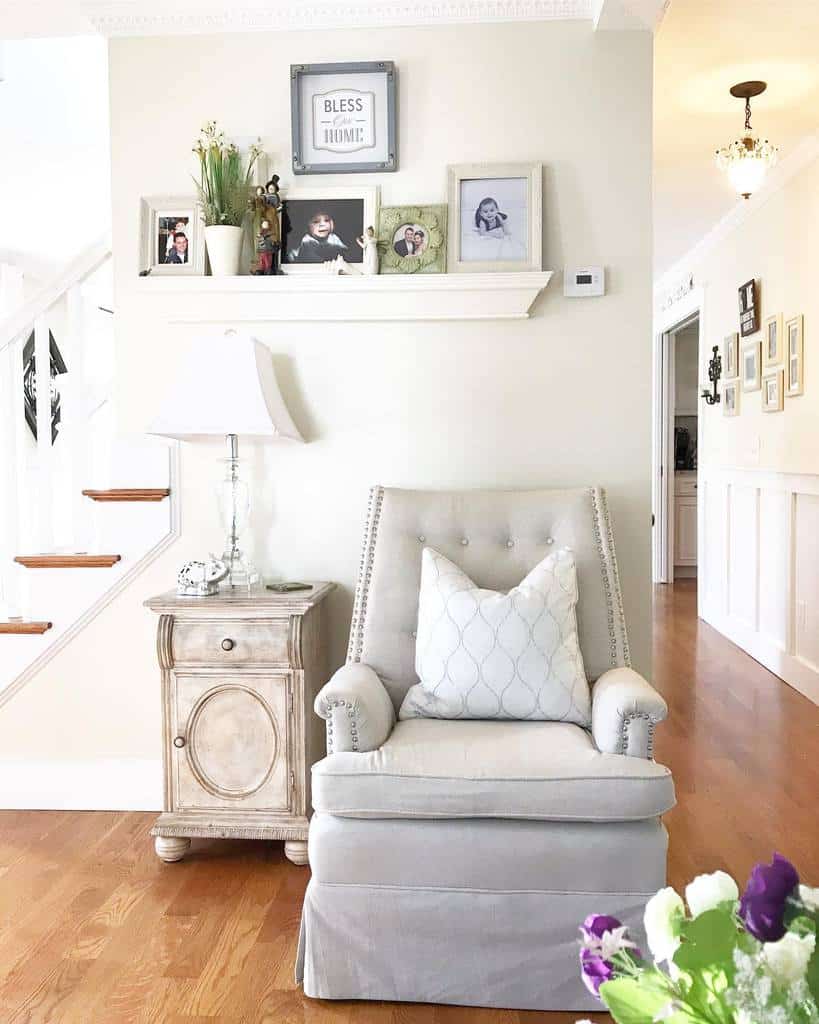
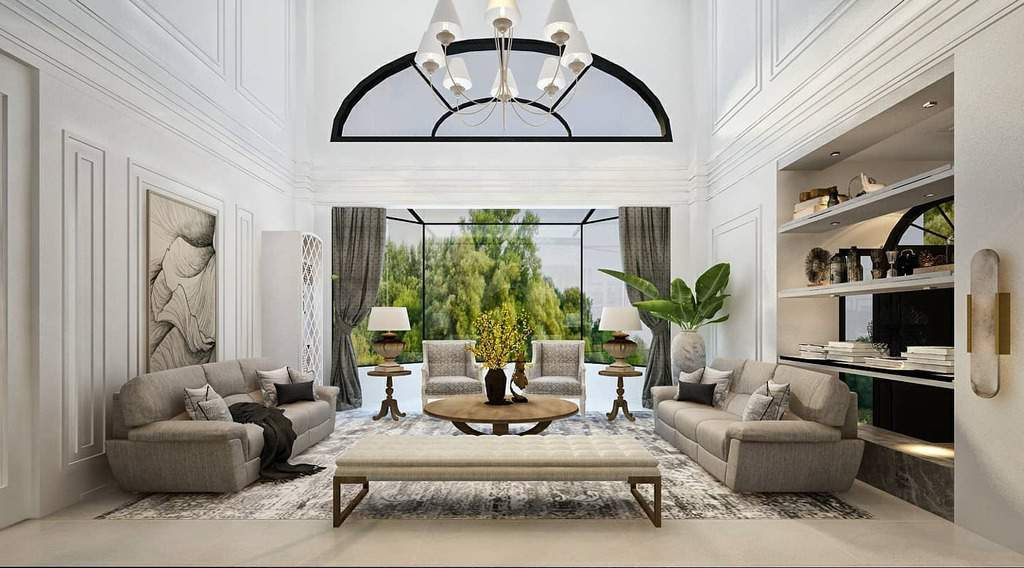
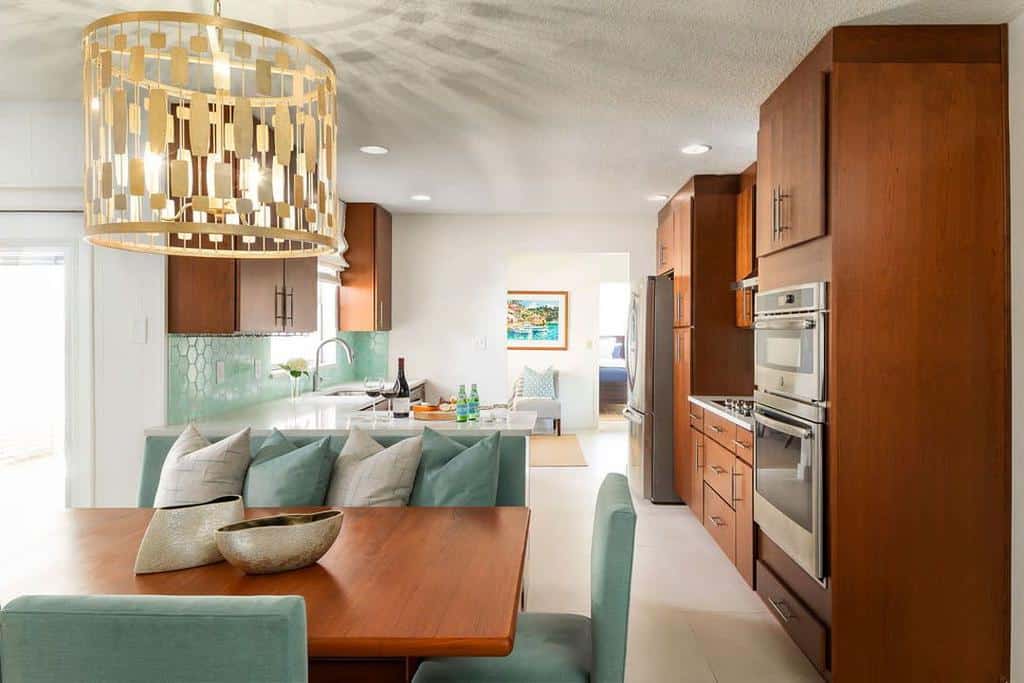
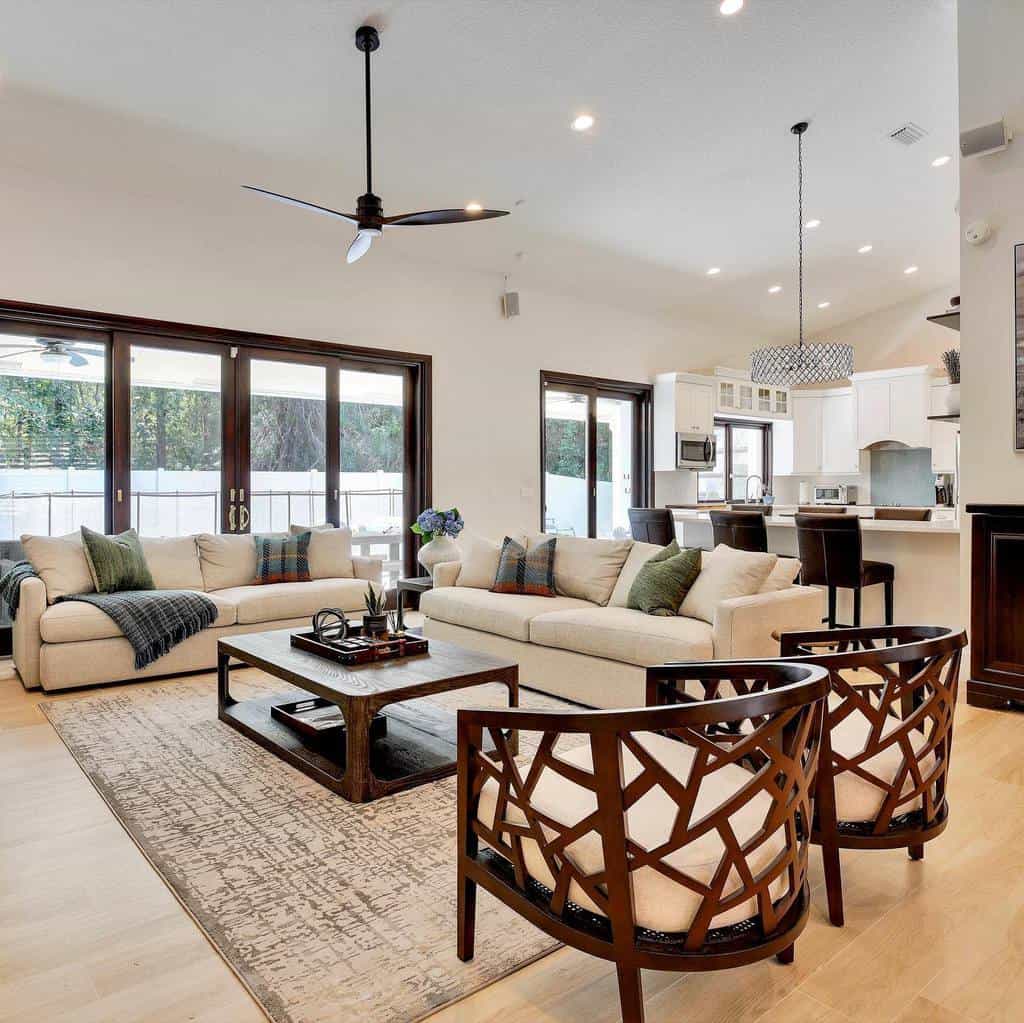
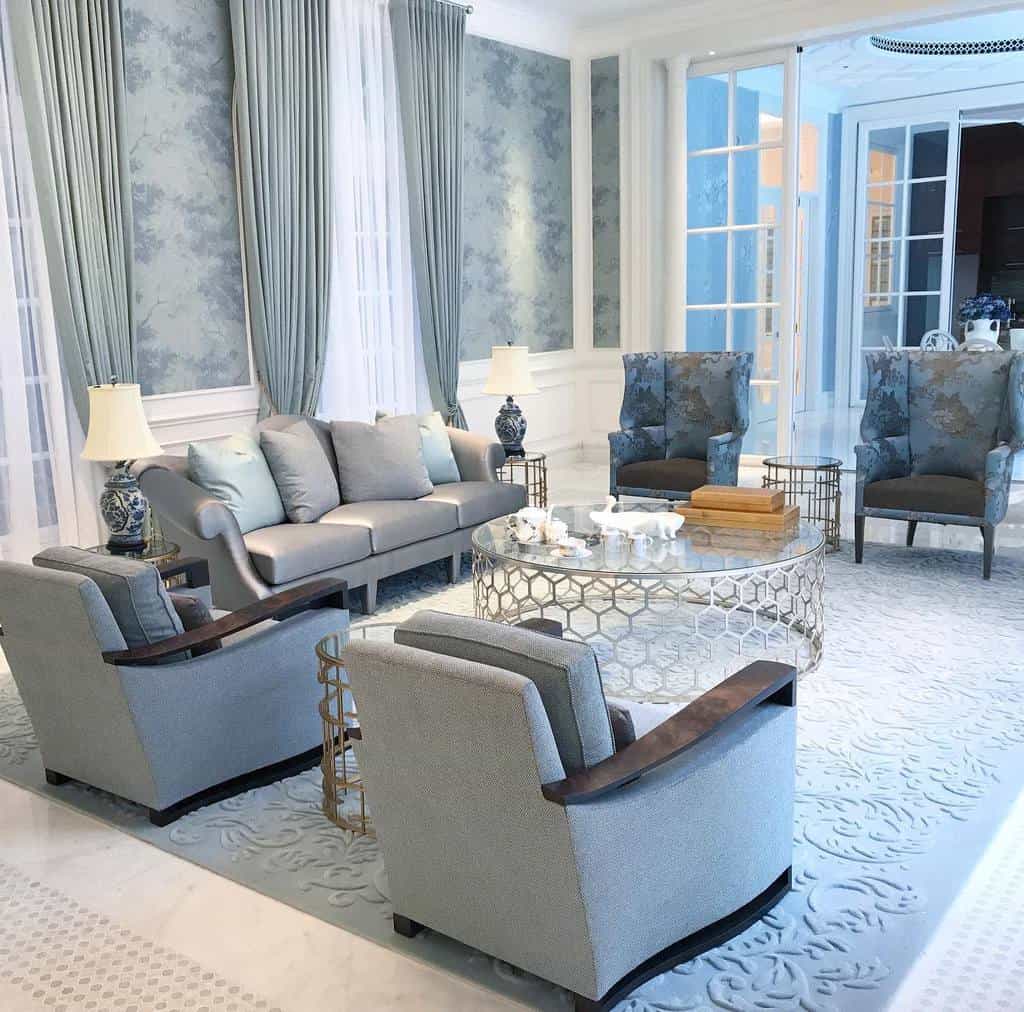
10. Rugs that tie rooms together
Add a sense of comfort to any room in your home with a rug. The combination of traditional and modern patterns creates a very versatile and flexible style. The design mix fits effortlessly into interior styles from classic to chic. Inspired by traditional rugs, a transitional rug features a repeating pattern divided into categories such as geometric or tribal.
It is better to choose rugs with neutral base tones and a subtle color contrast to complement the design style of a room. Size is also a factor to consider when choosing a rug. For smaller rooms in the house, opt for a round rug or a runner rug.
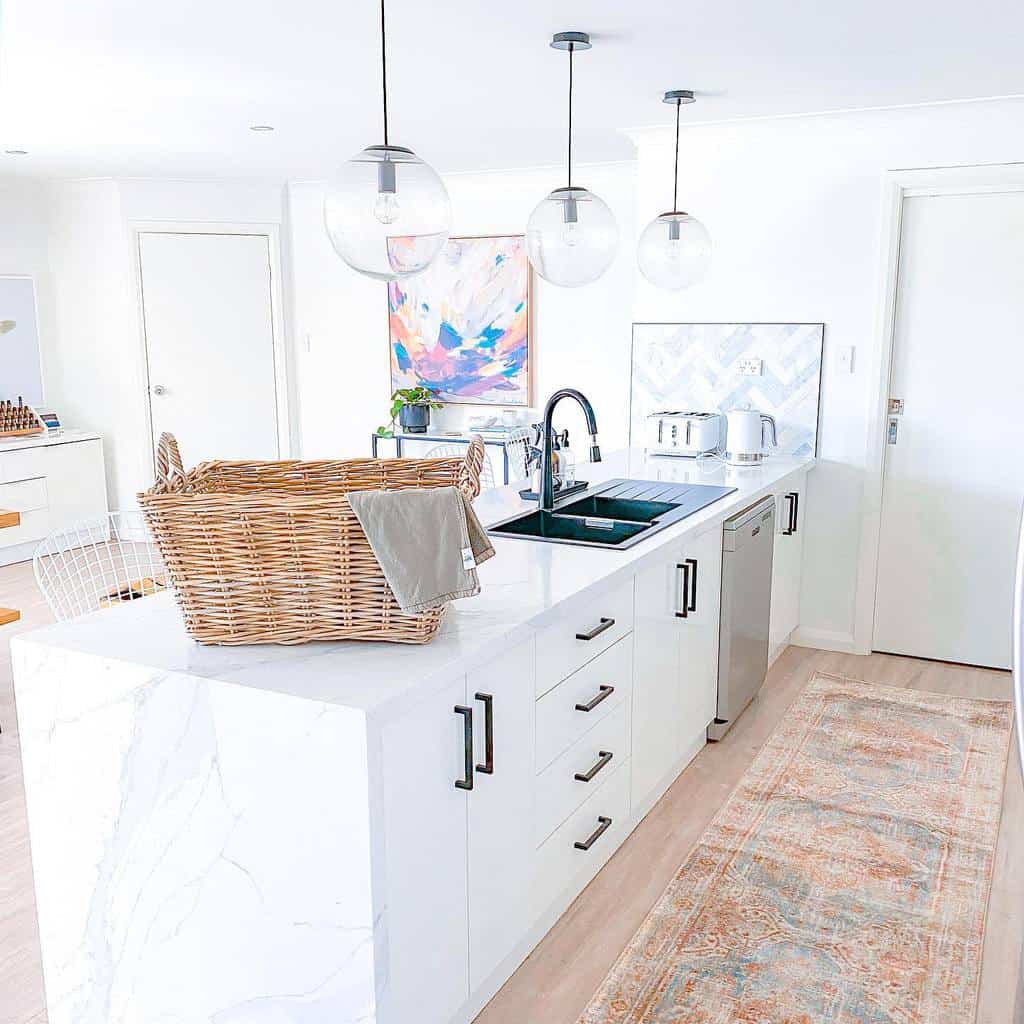
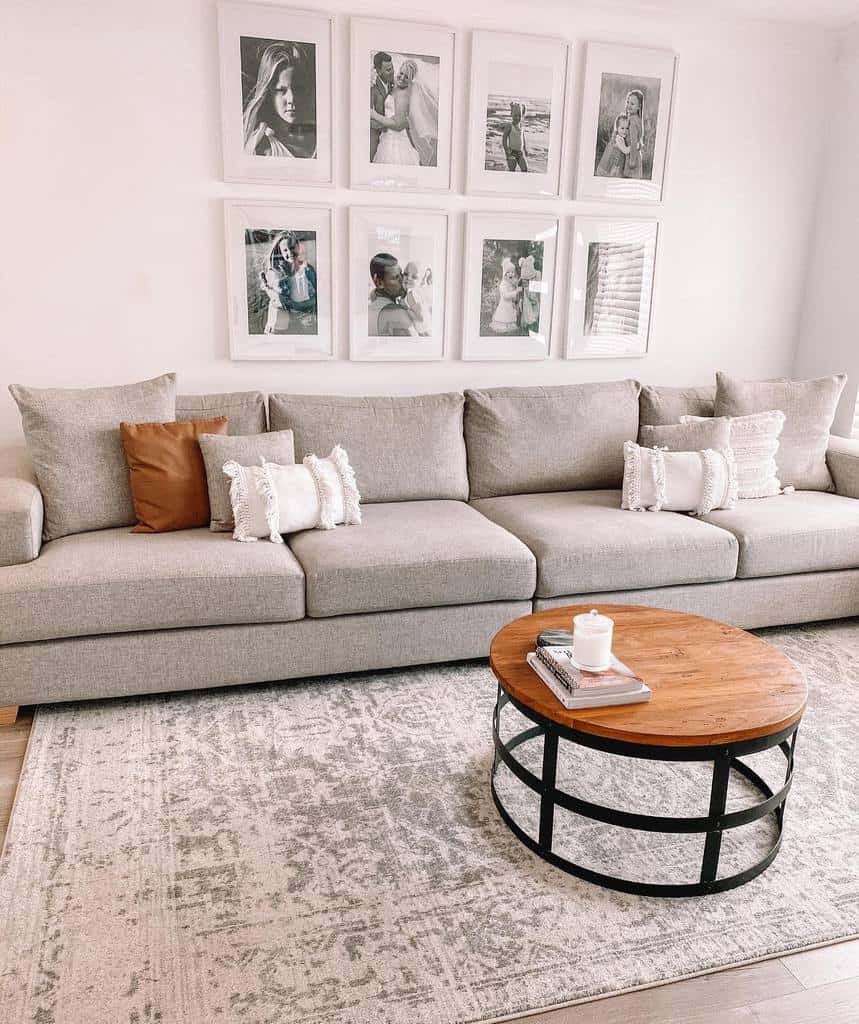
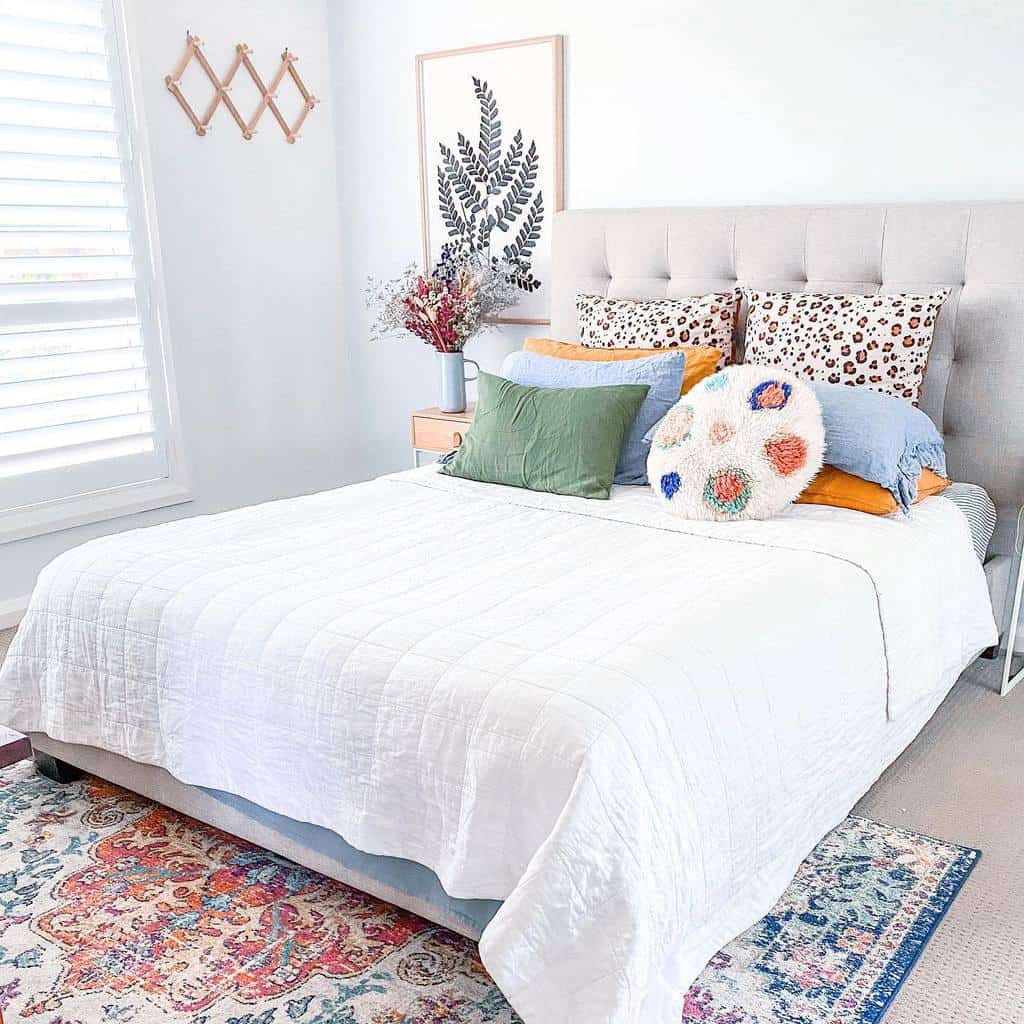
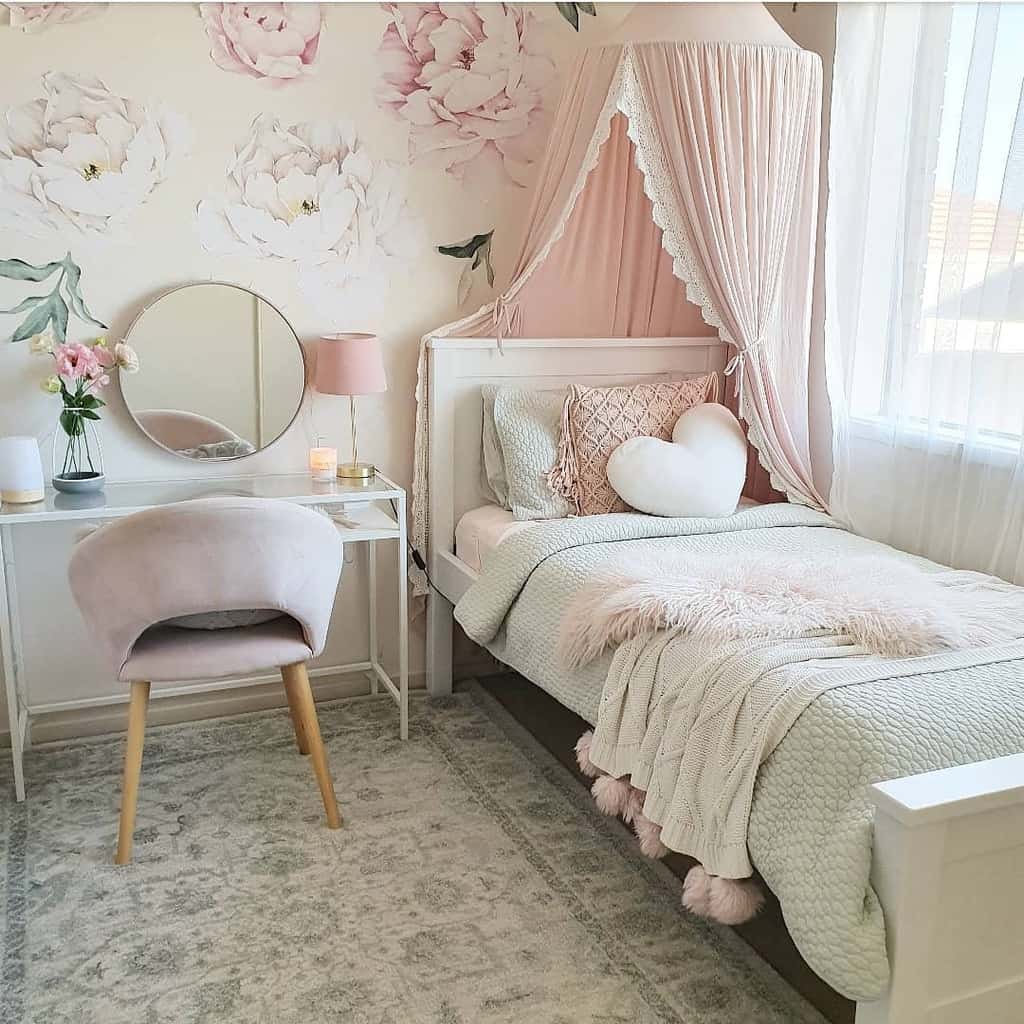
Frequently asked questions about transition design
Will the gradual implementation of the design transformation still have a big impact?
By no means do you need to do a complete transformation overnight. Start with a base of cozy neutrals and elevate it by adding unique accents as desired. Instead of rushing the transformation, take the time to choose thoughtful pieces to add to your space.
What are the key elements to achieving a transitional design style?
Transitional interior design is about being modern without sacrificing traditional details. A soft, neutral base is key, but it’s also brought to life with a splash of bold color. Soft lines and textures appear cohesive and add tension and complexity to achieve the overall style.
Am I limited to just one accent color?
Not at all. By letting the neutral color palette dominate the room, you can easily add a second accent color to the room. However, the best option is to vary different tones within the same hue to avoid overload. Variants with bold hues add depth while still giving your room an overall modern feel.
 TopsDecor.com Home Decor Ideas
TopsDecor.com Home Decor Ideas


